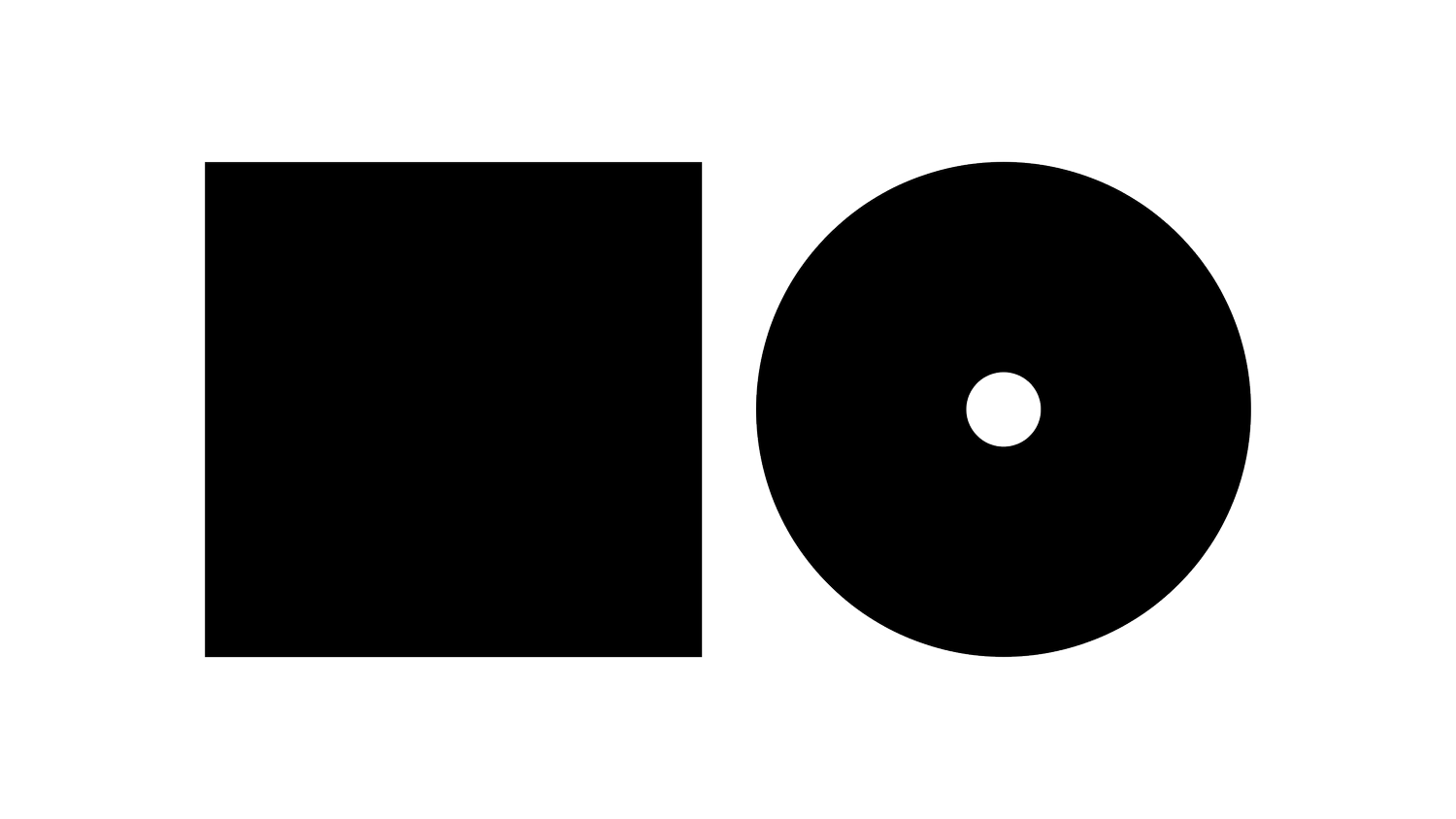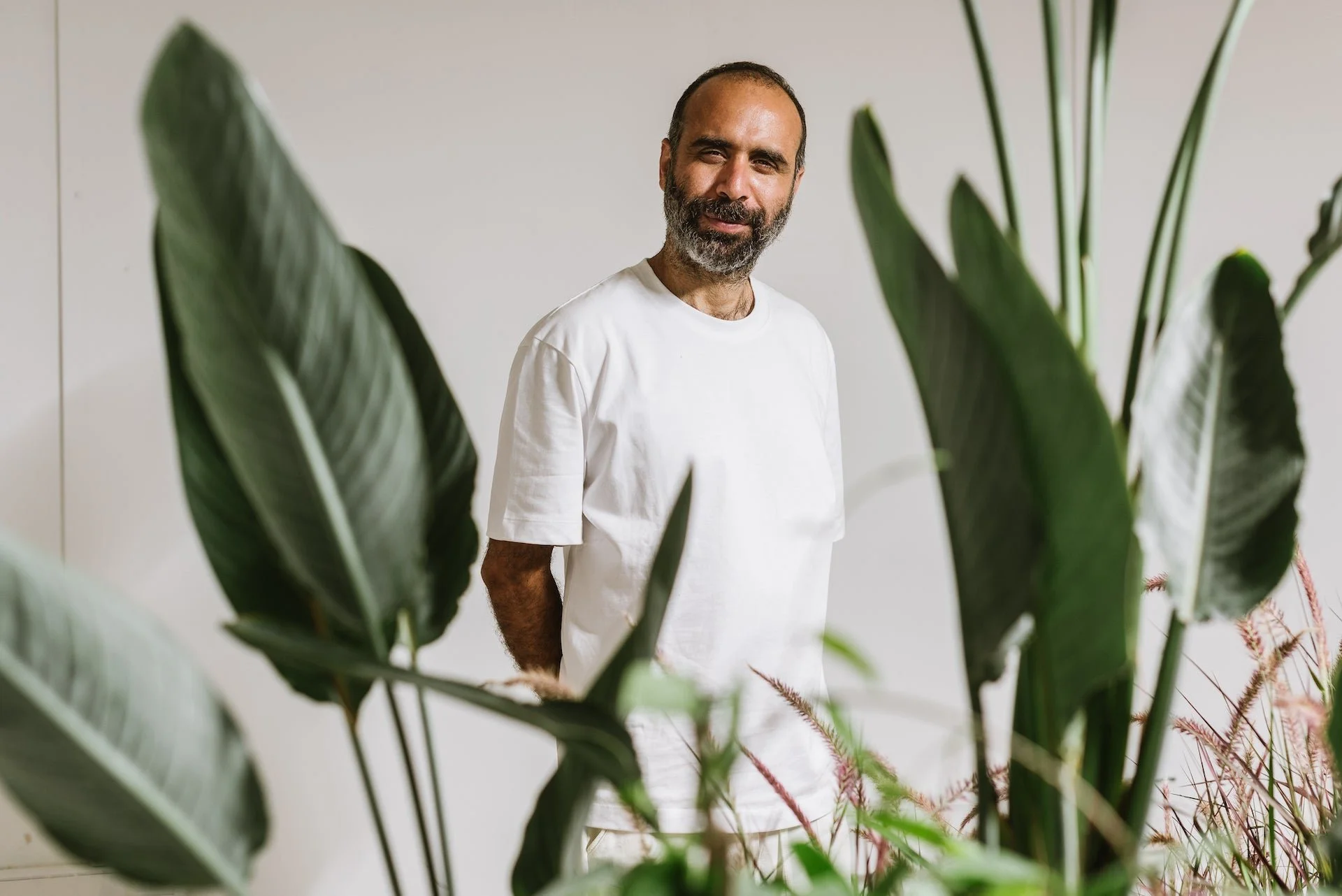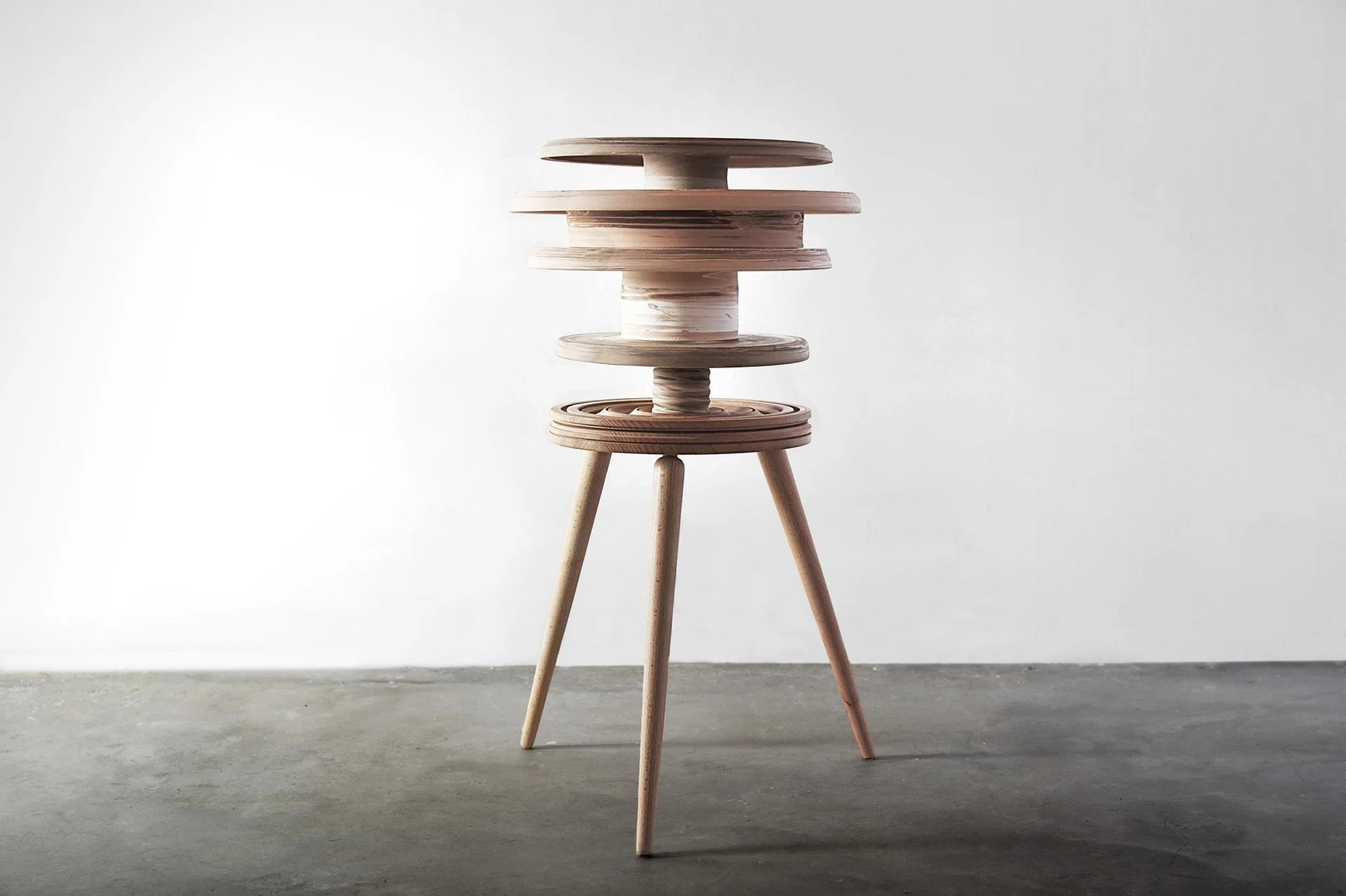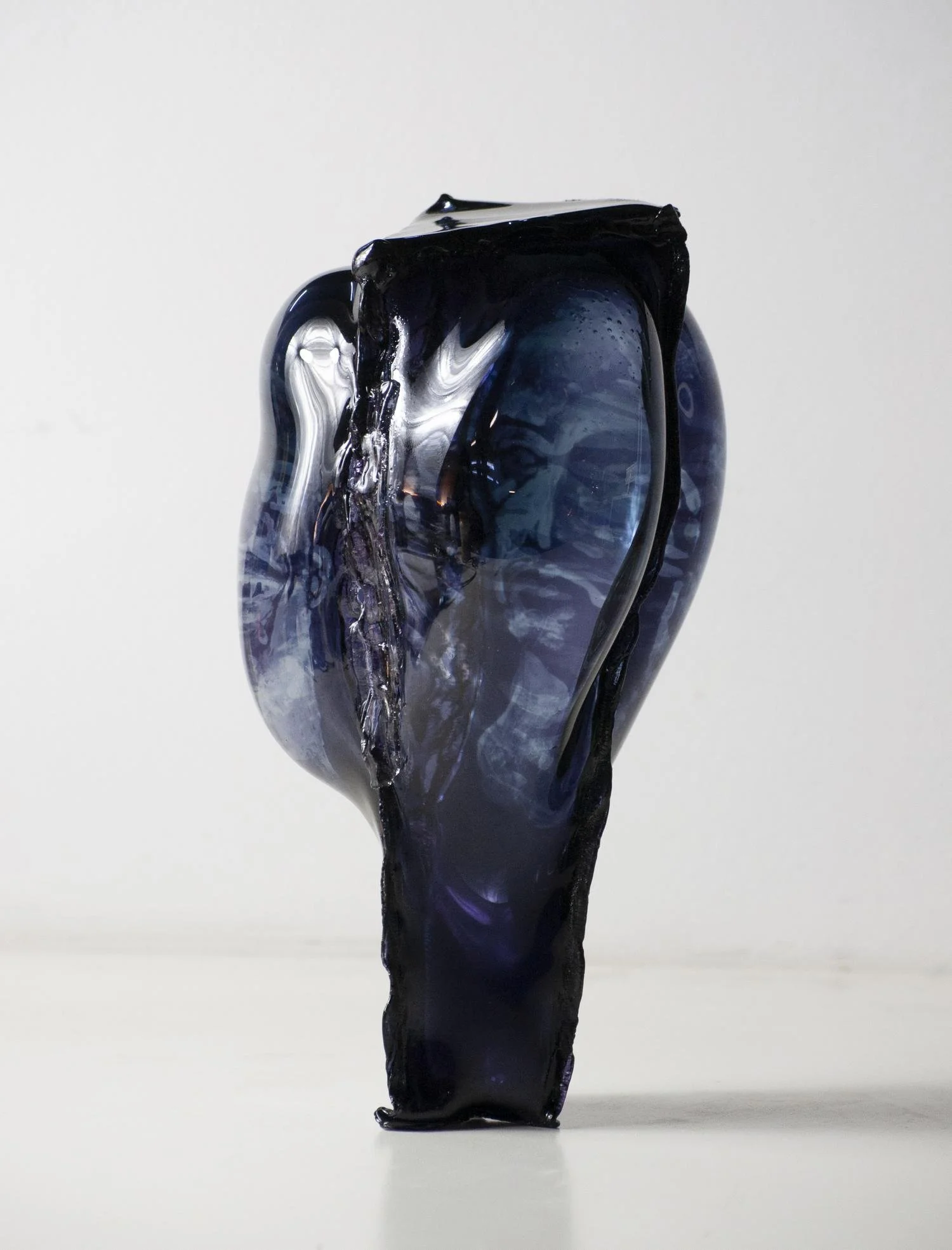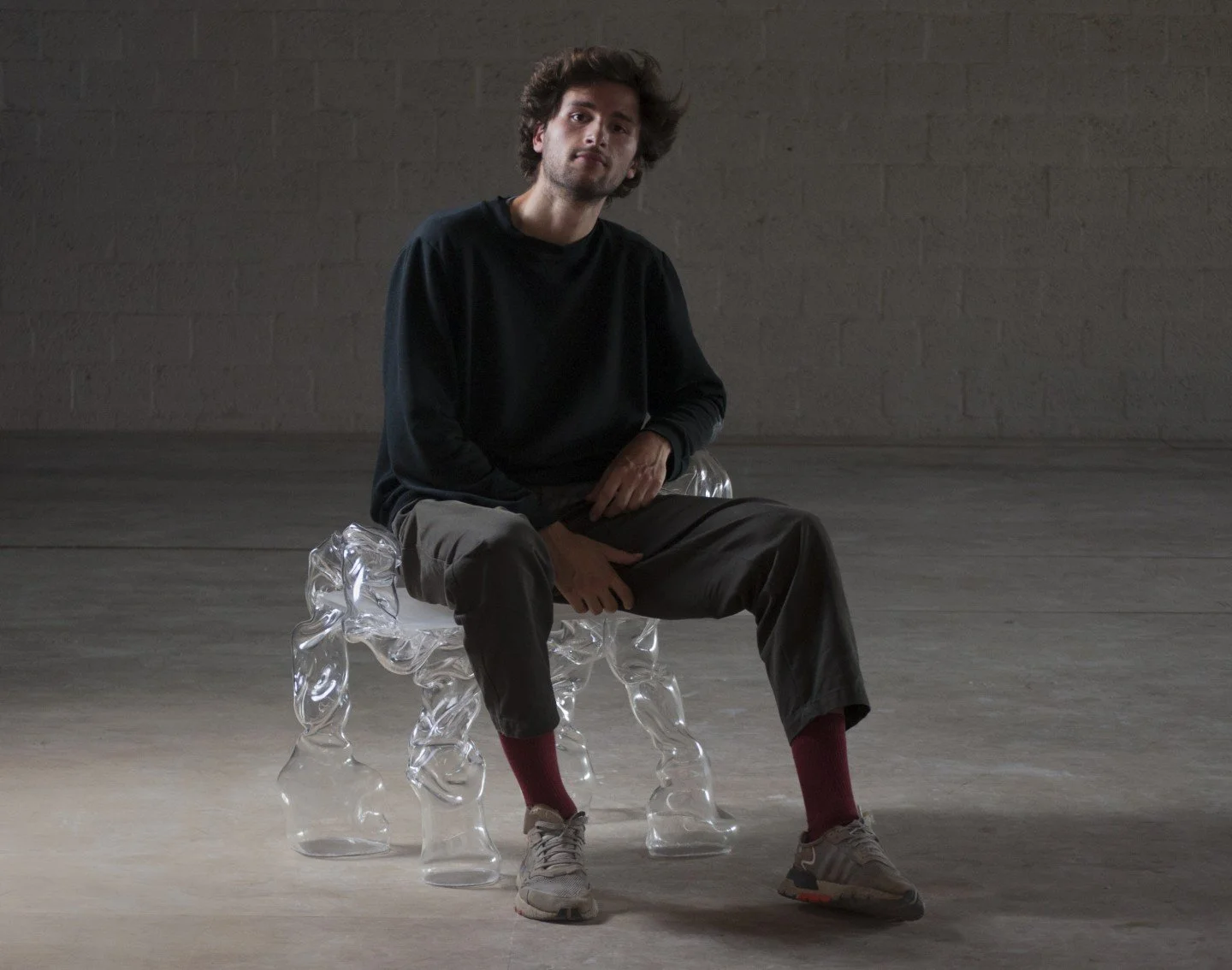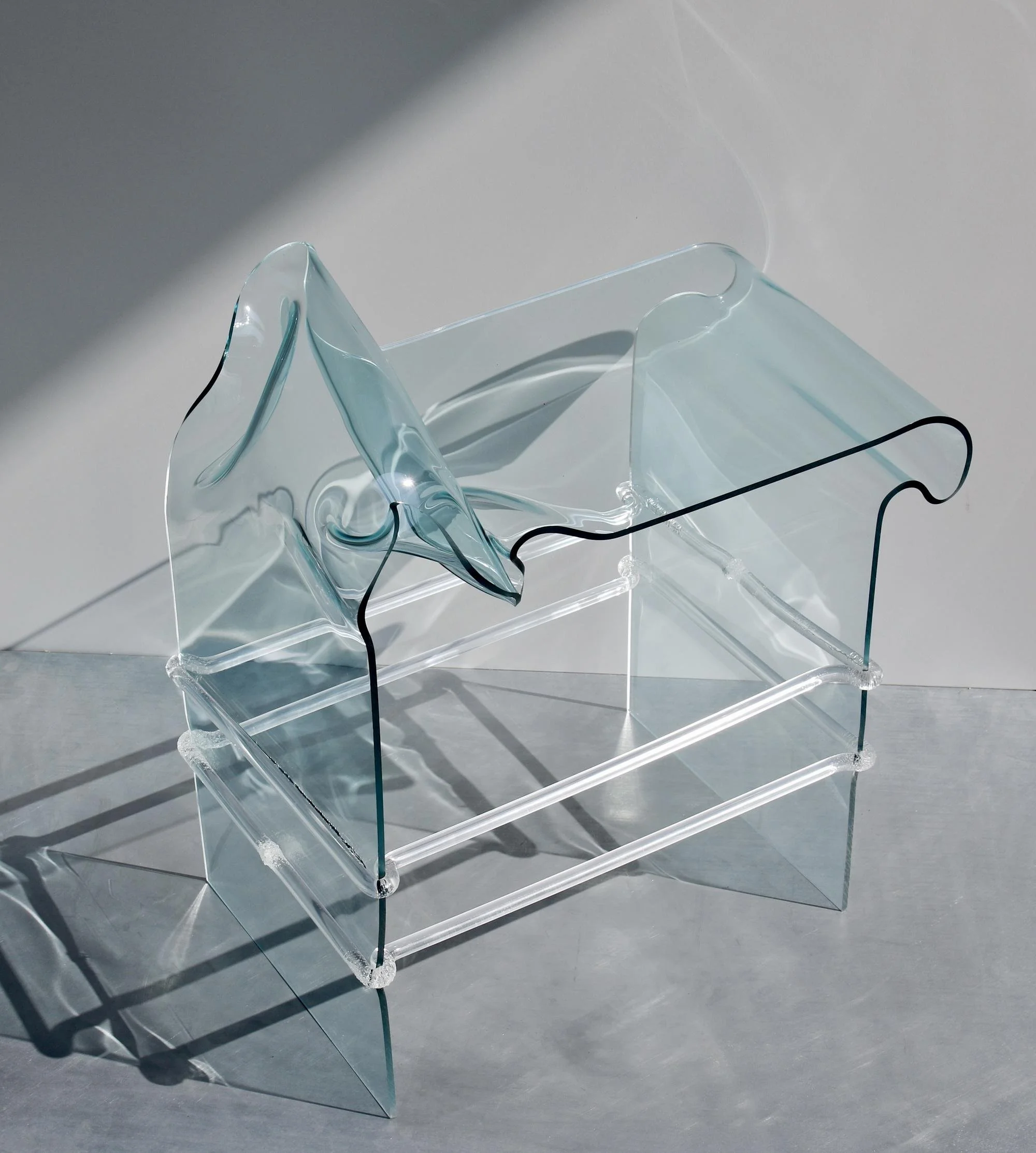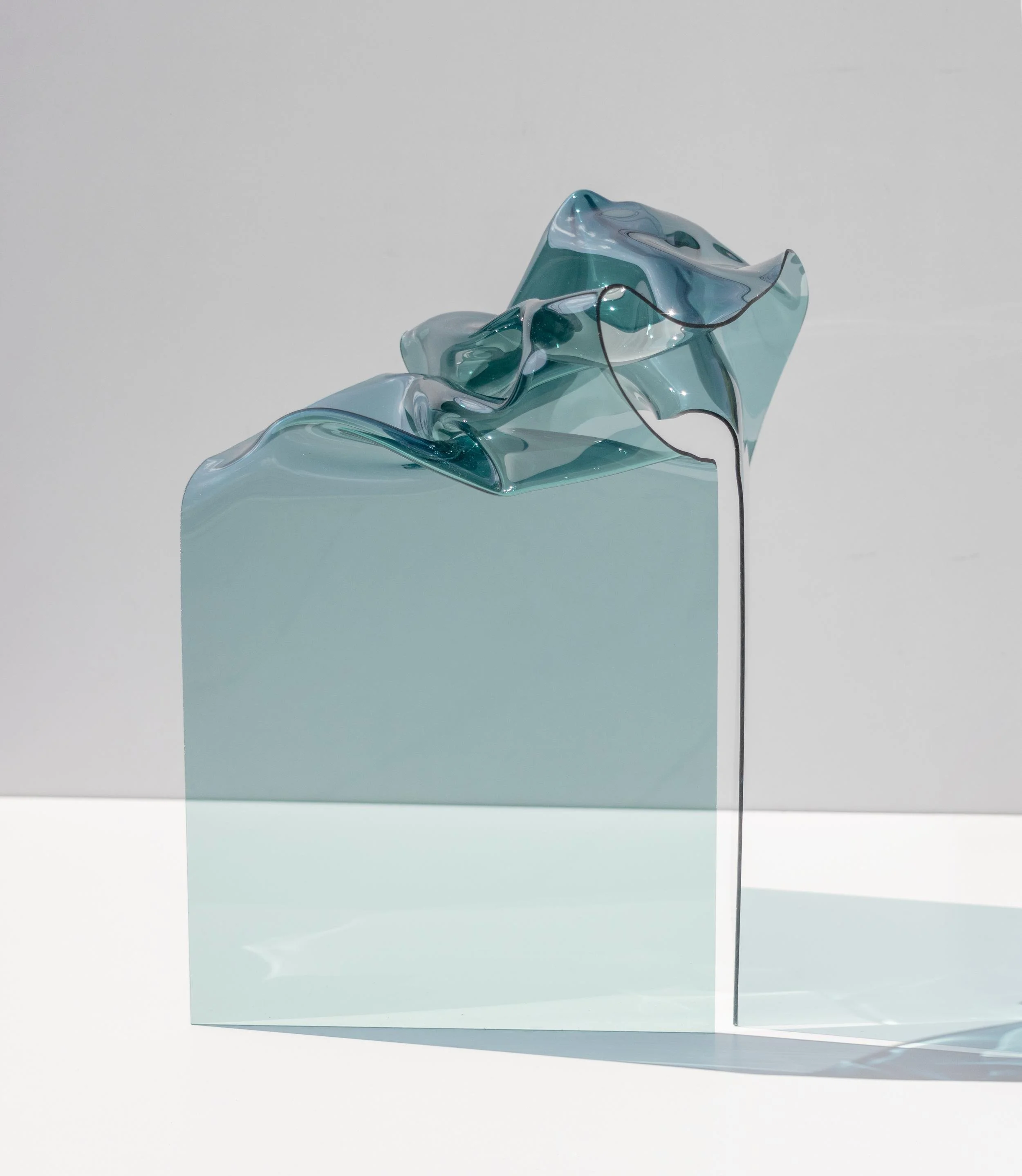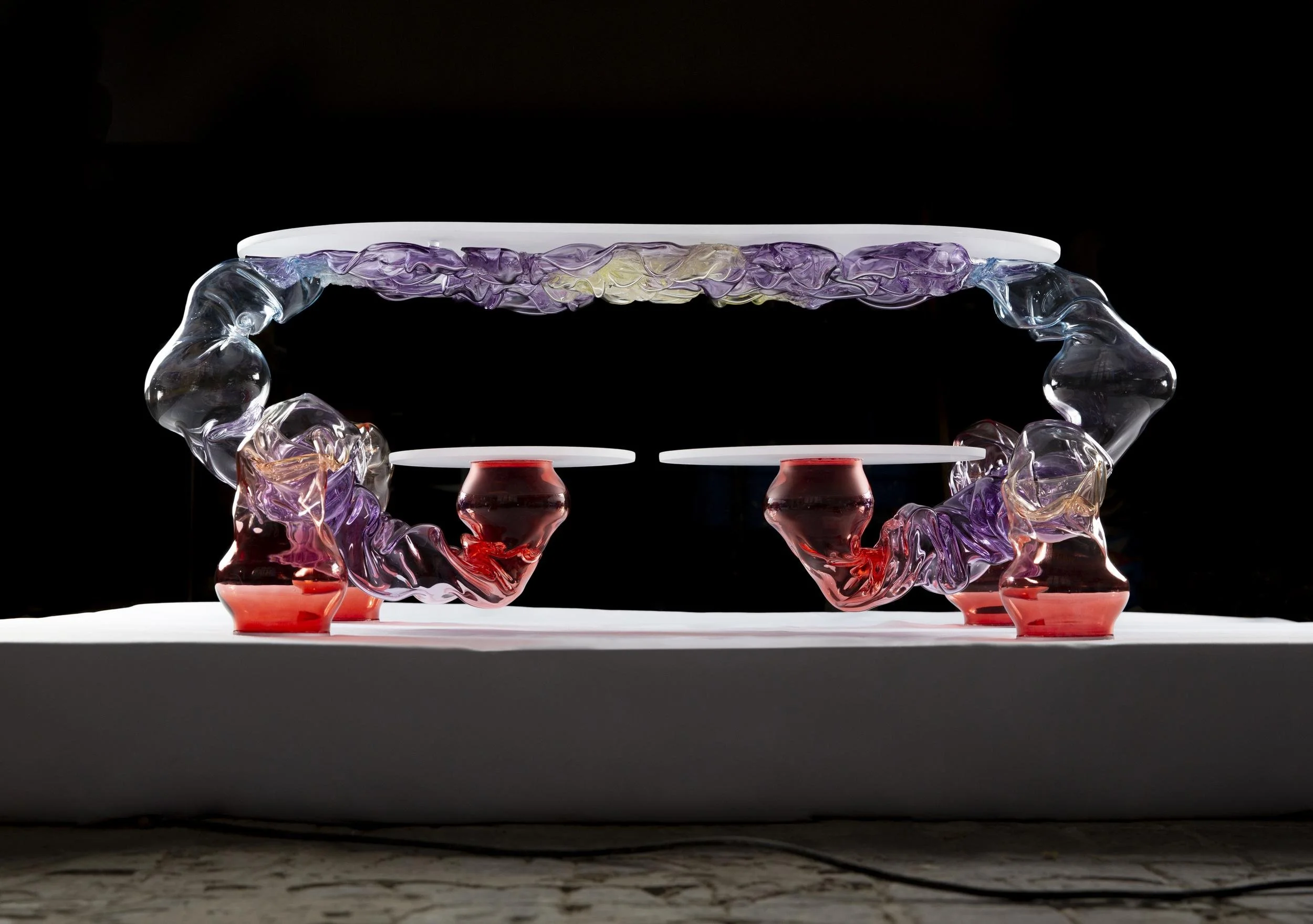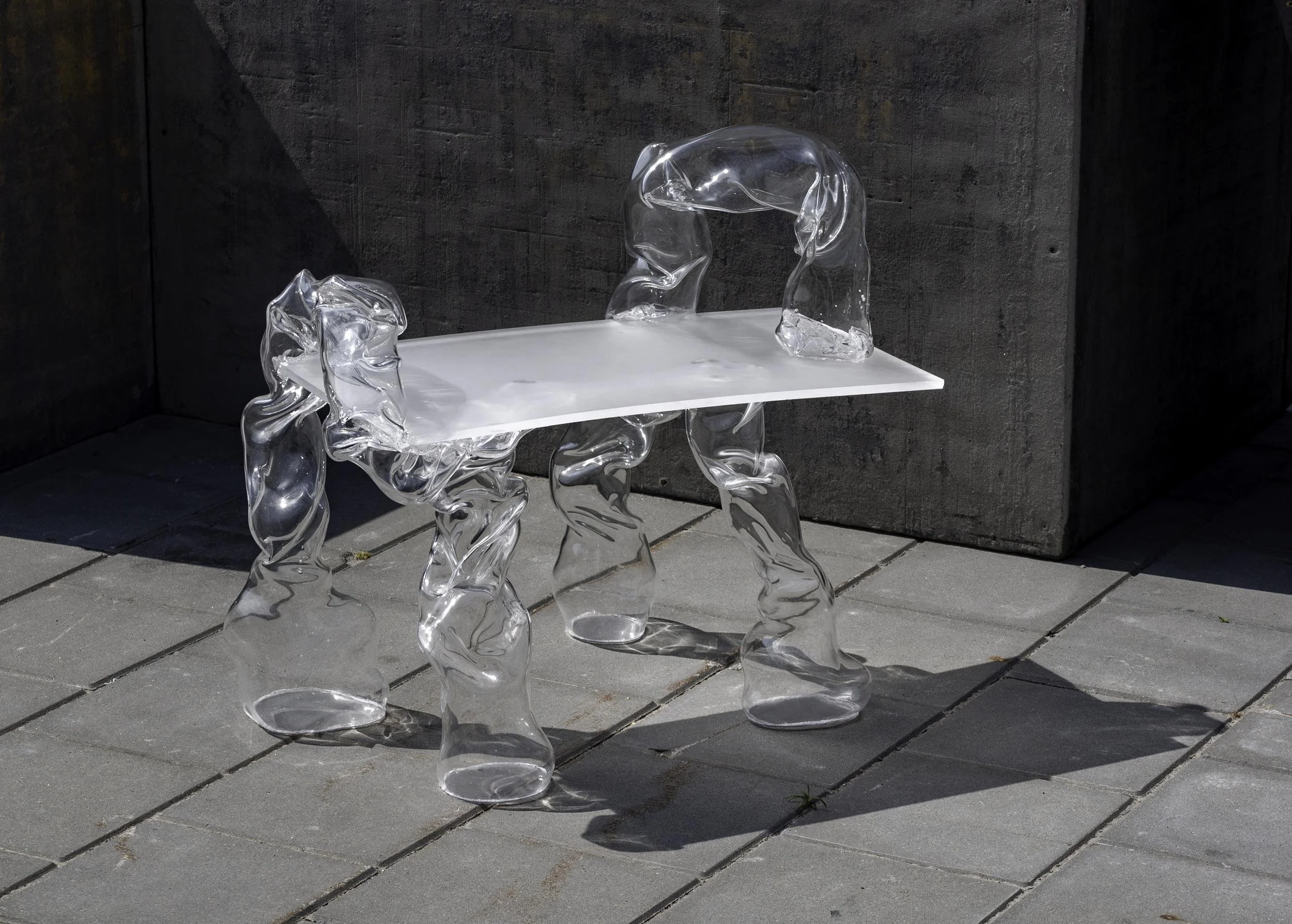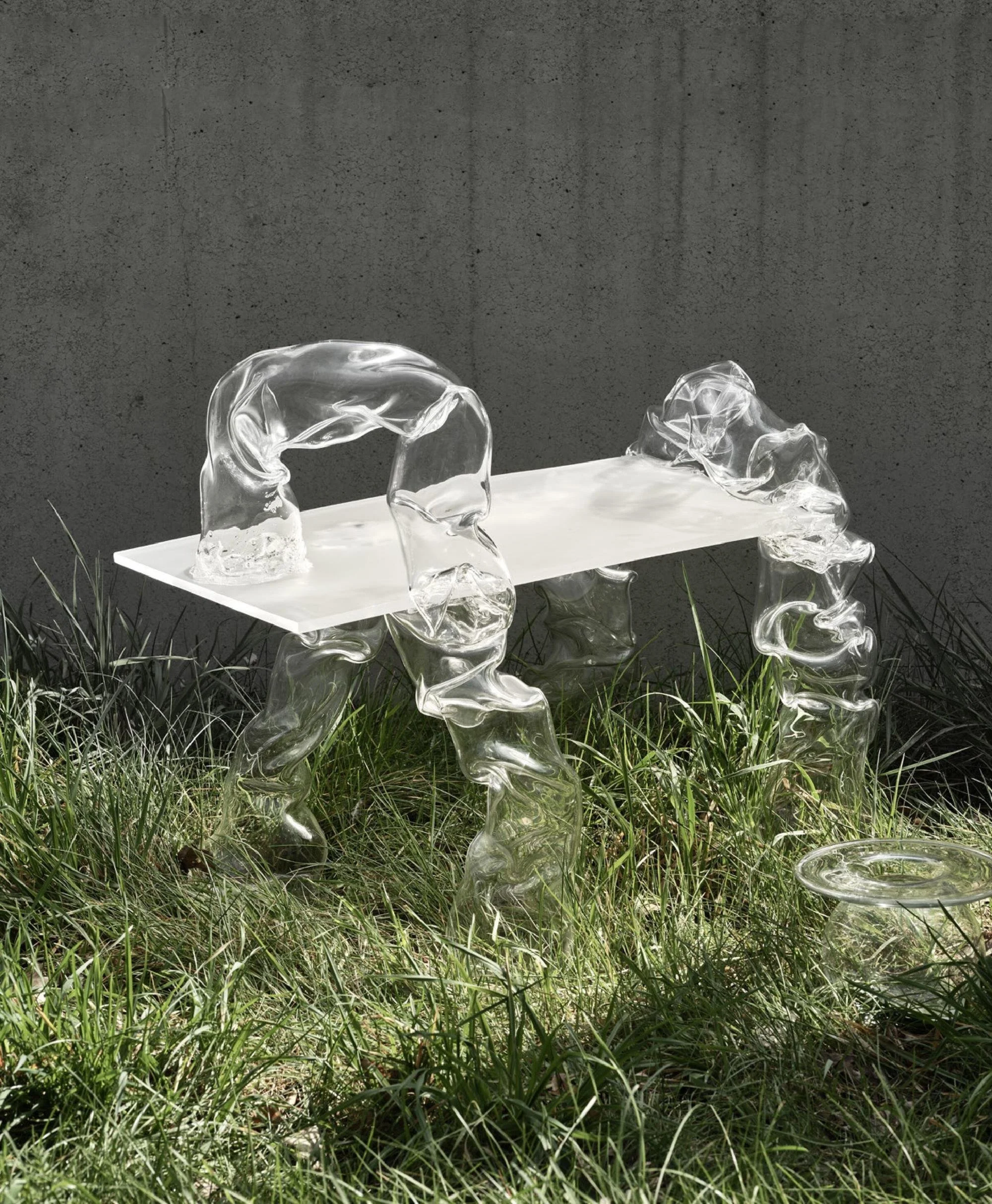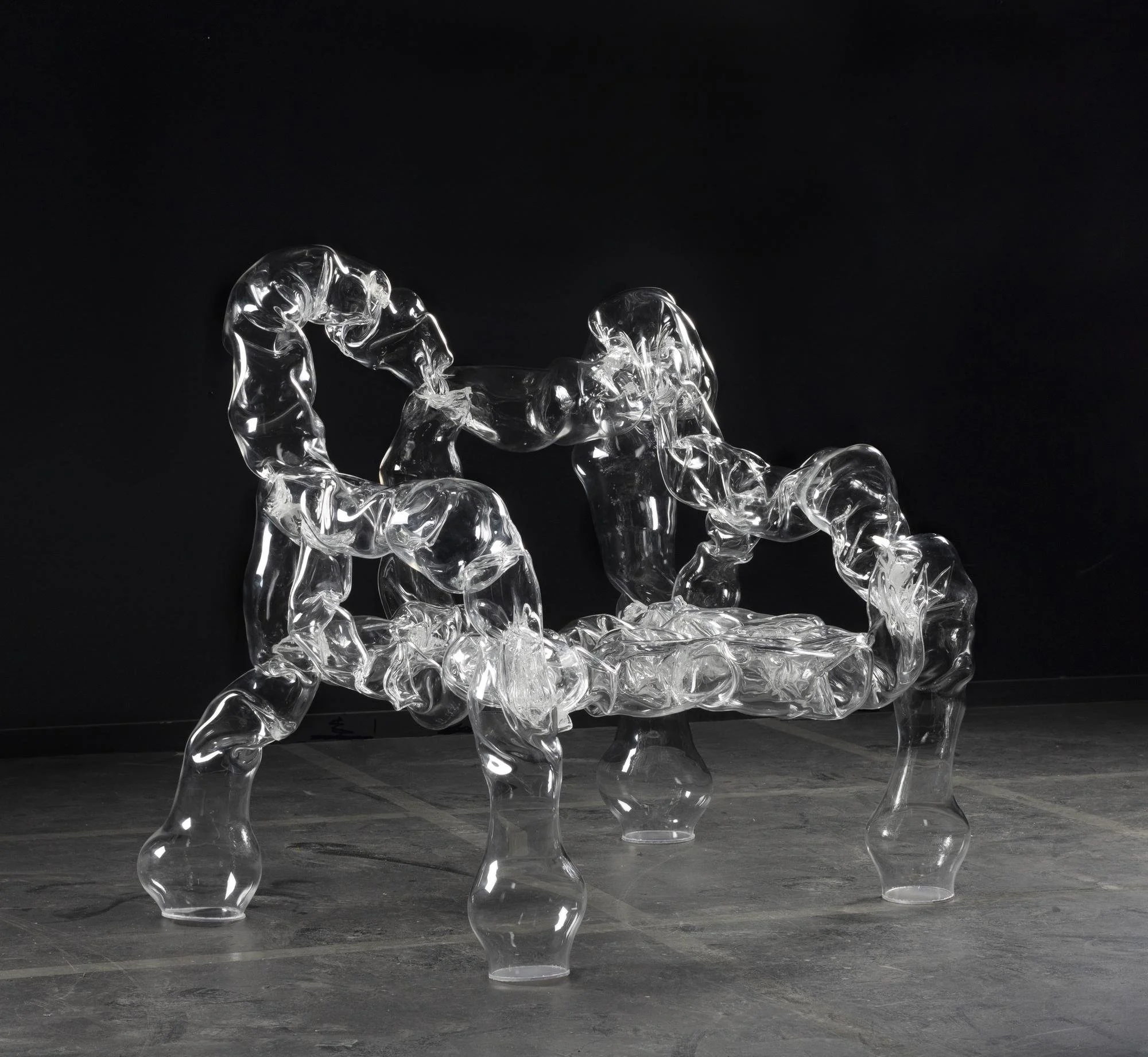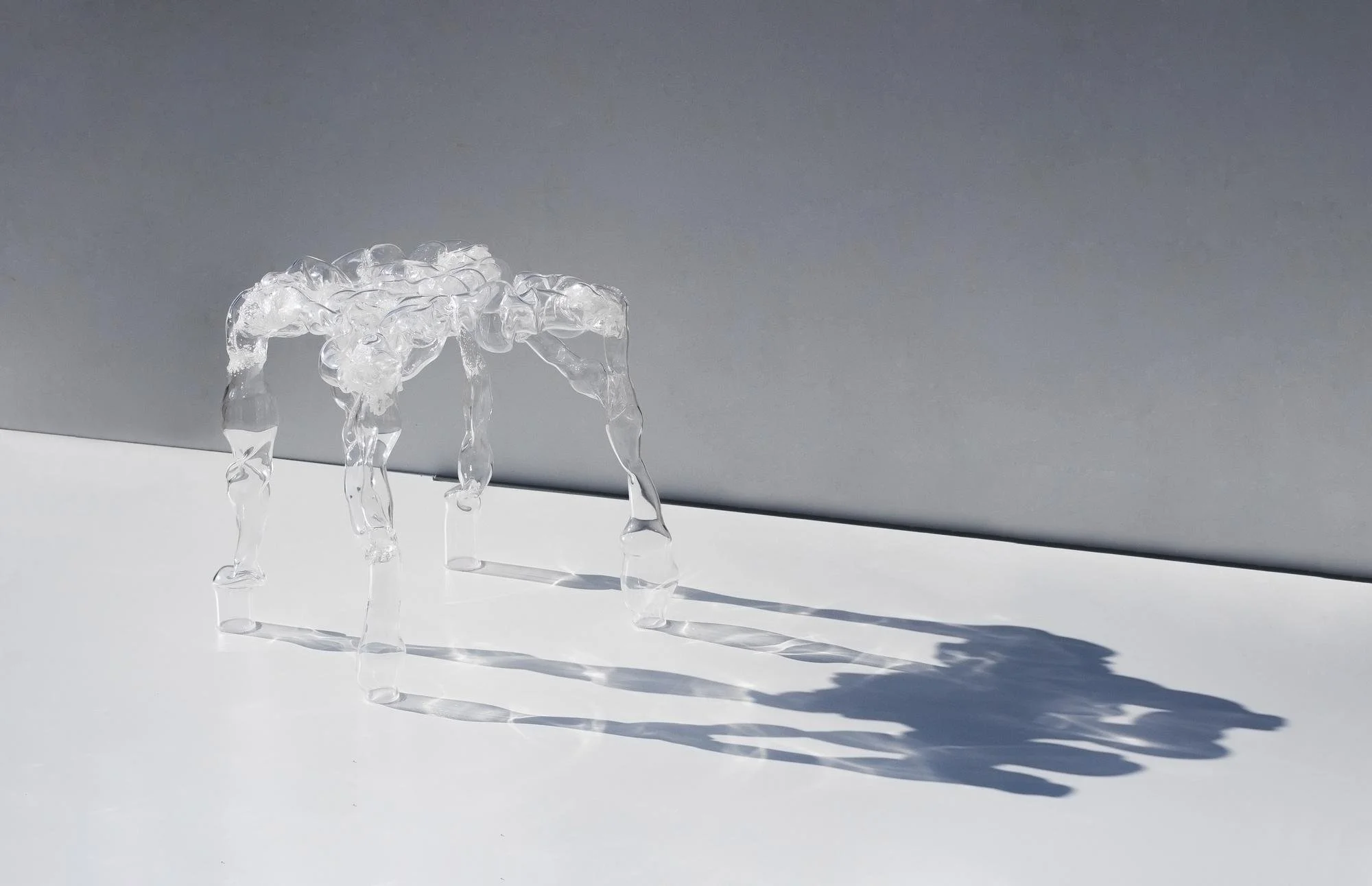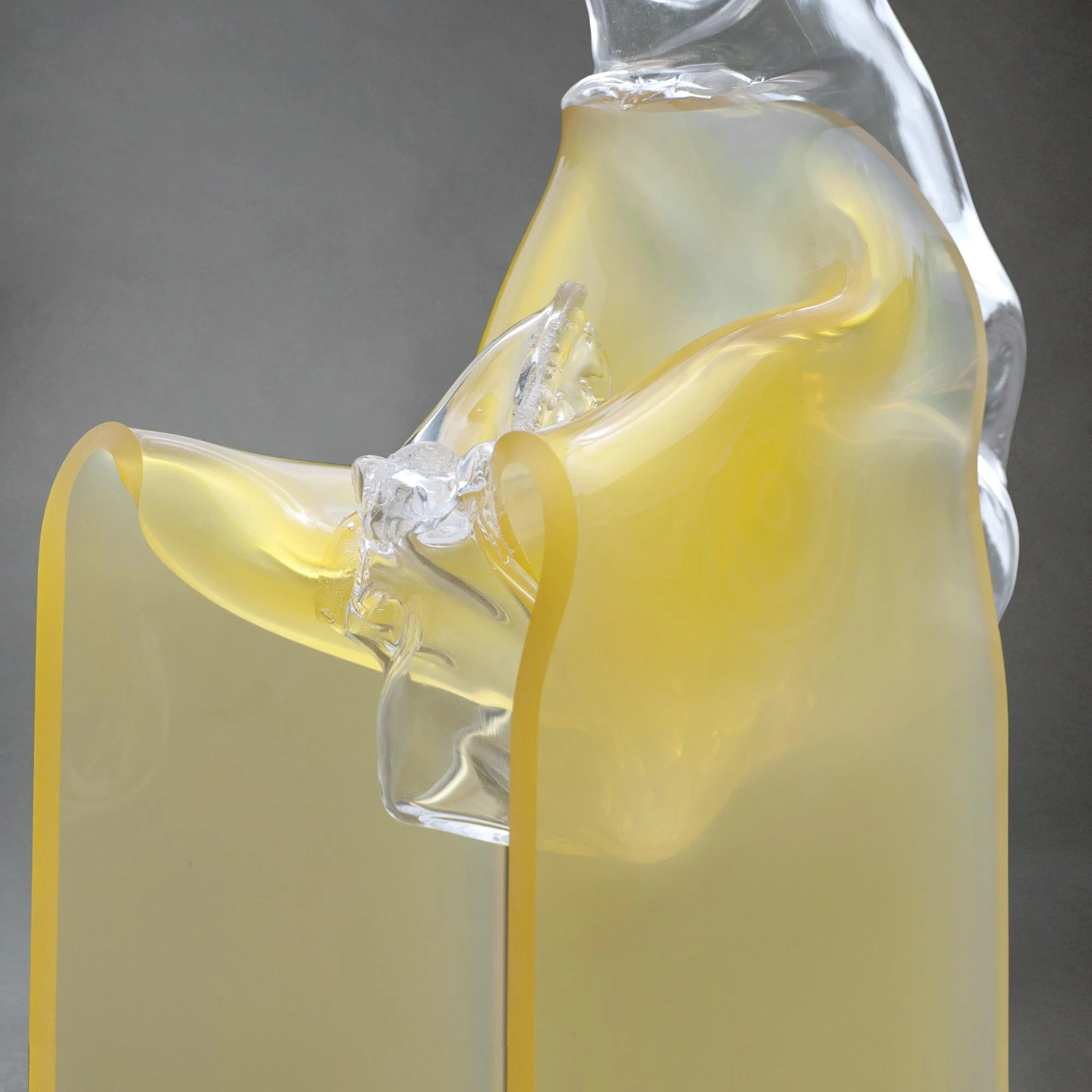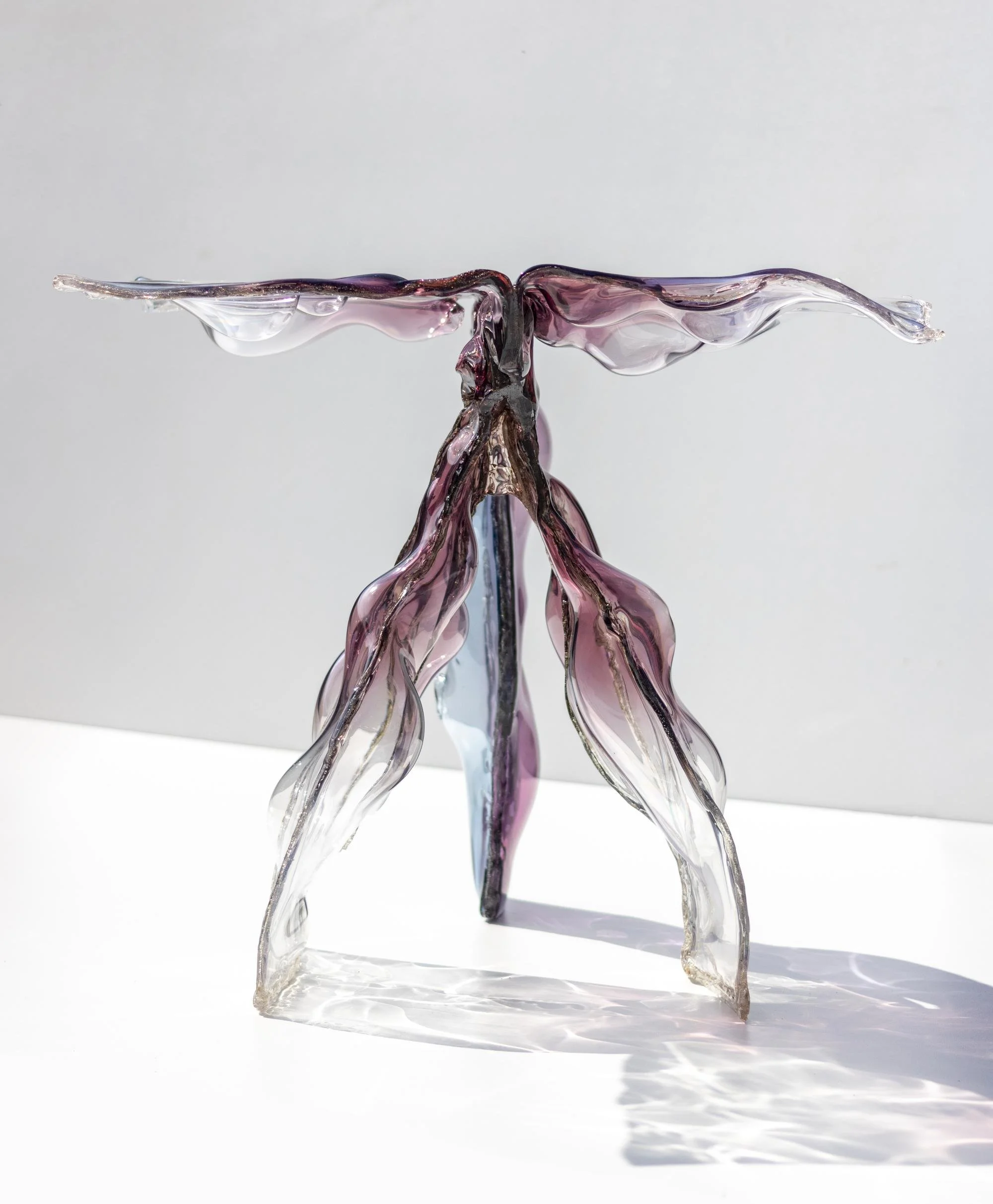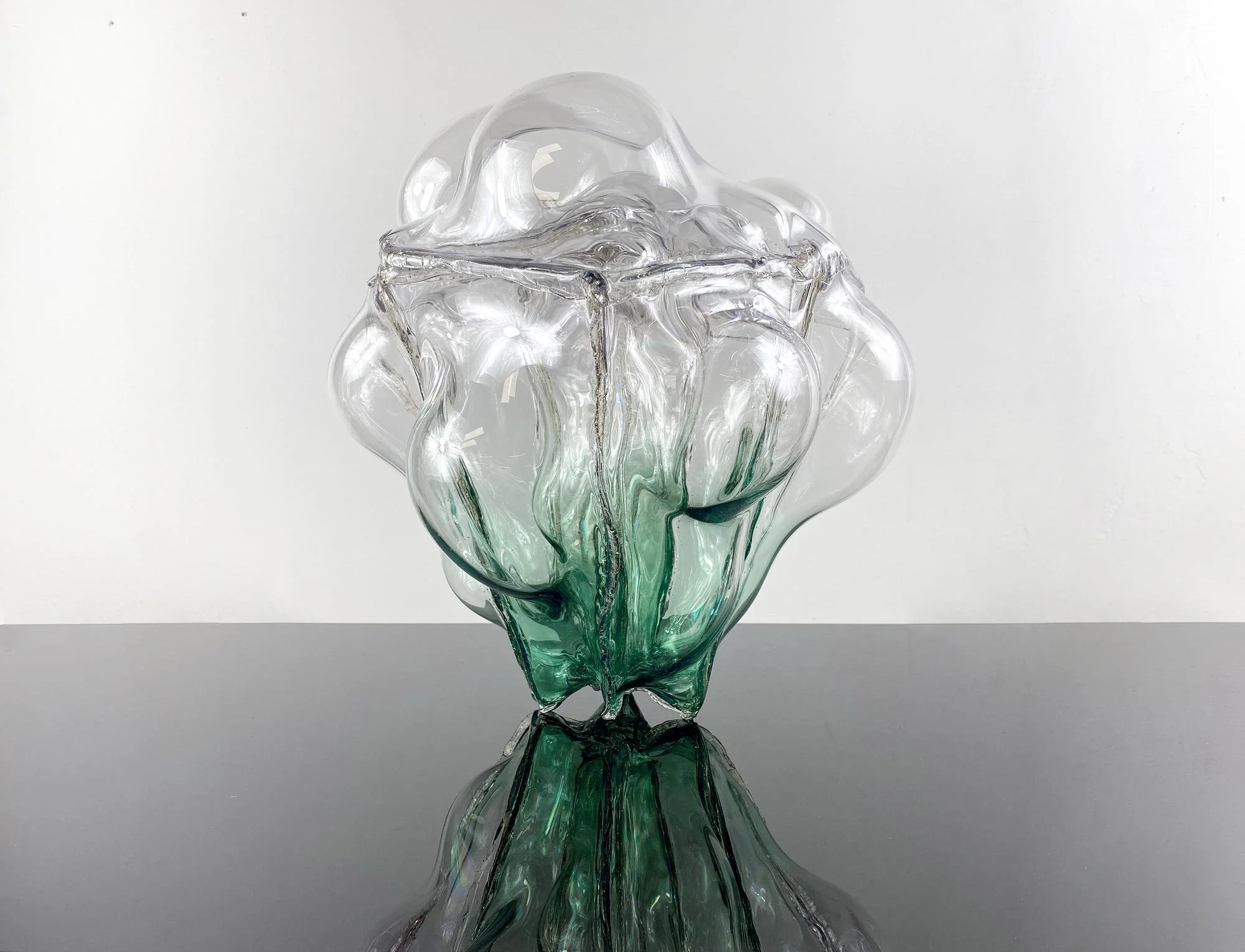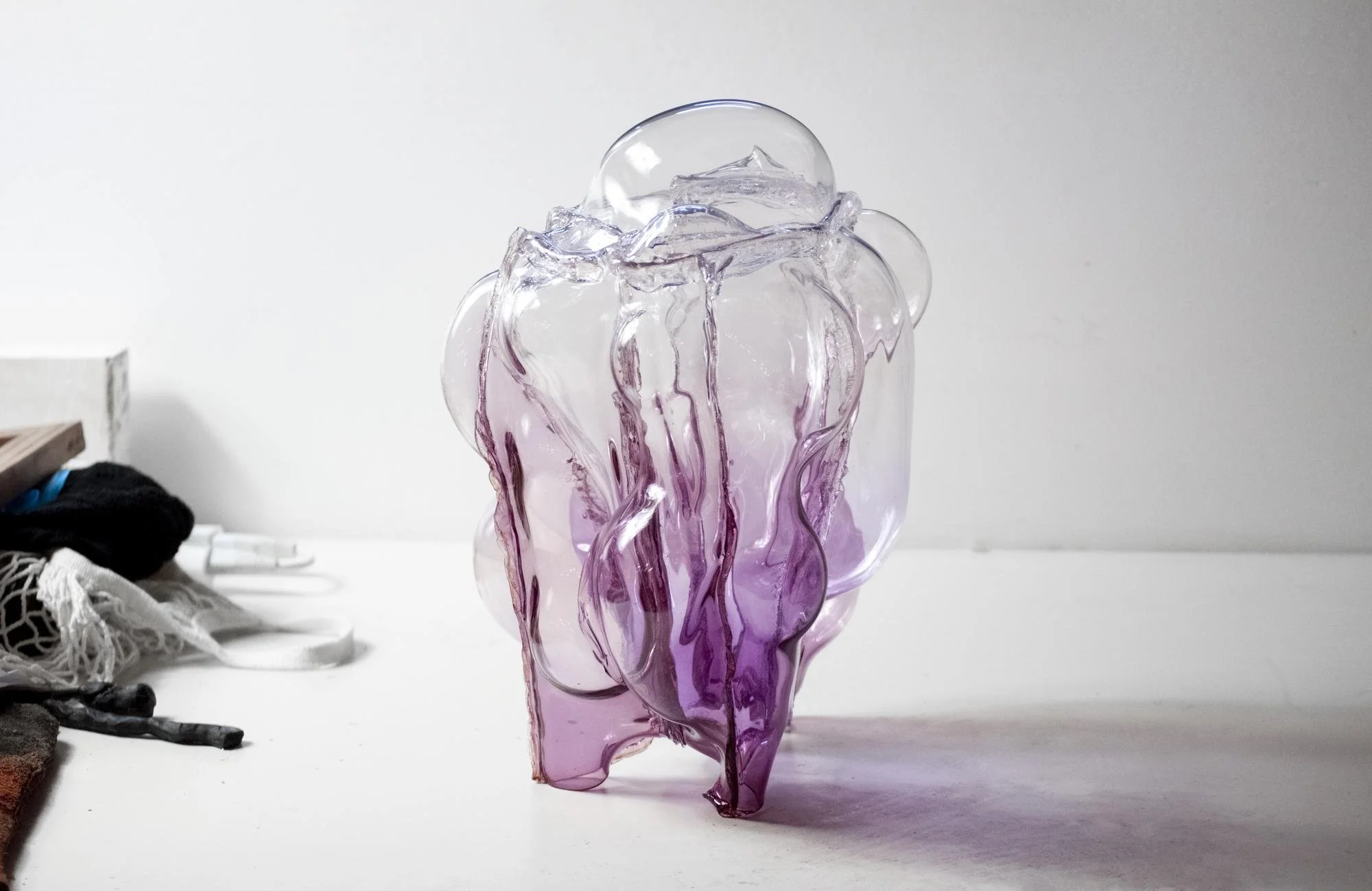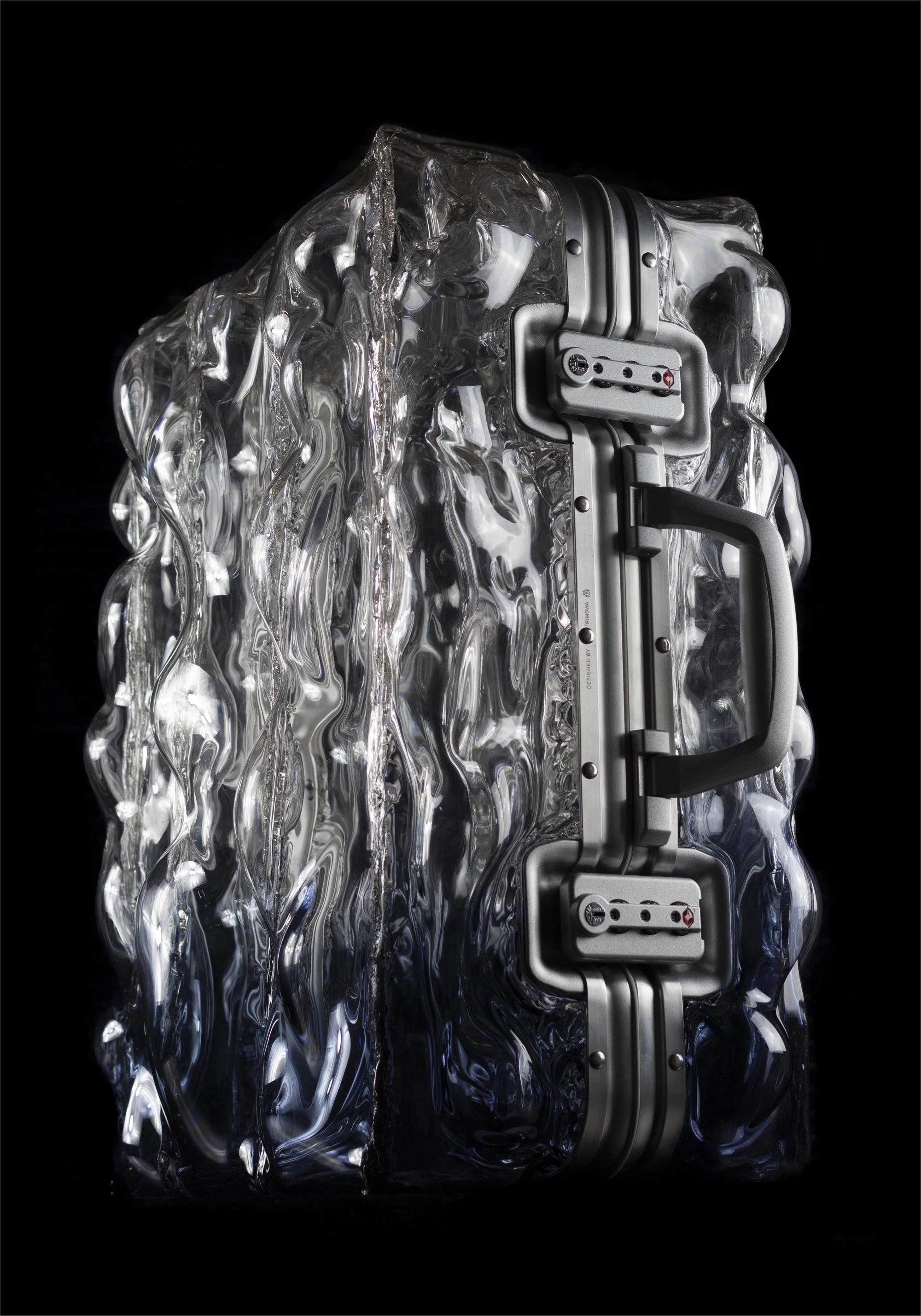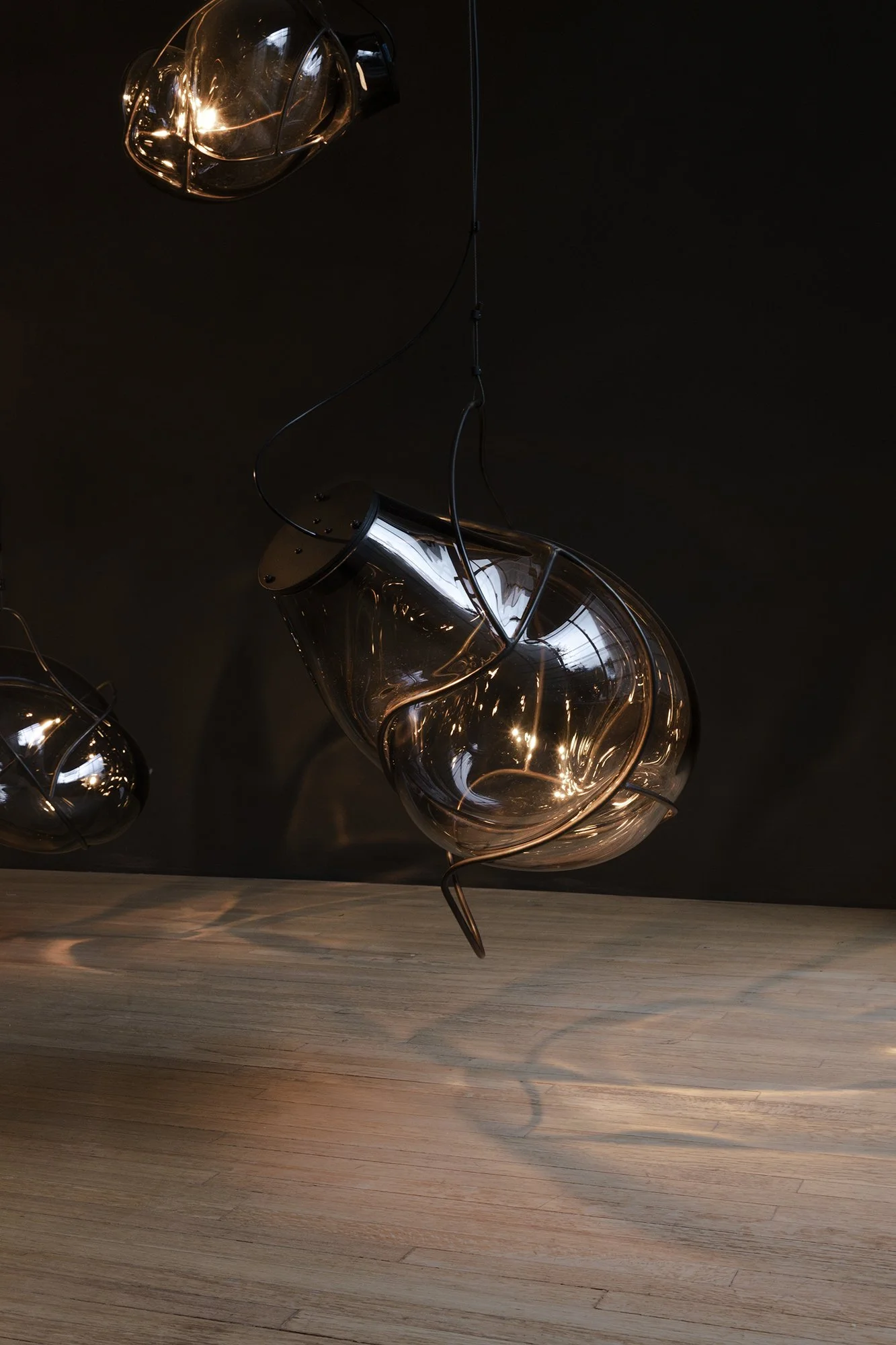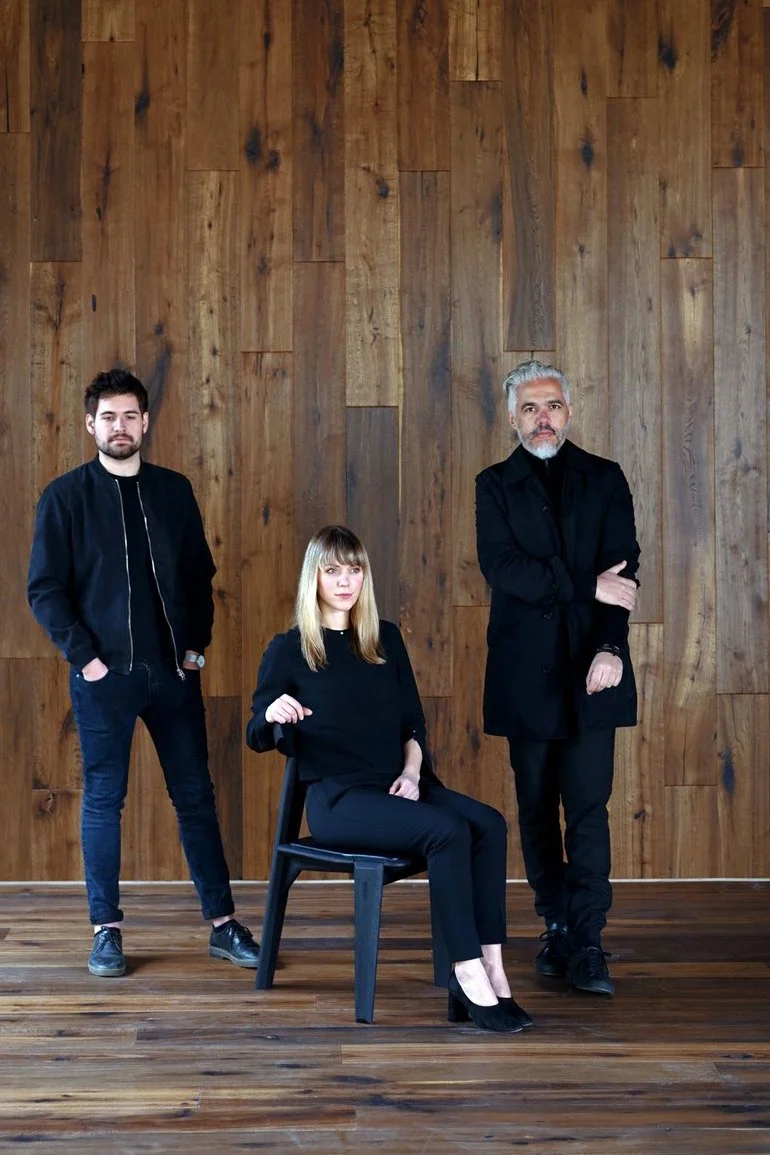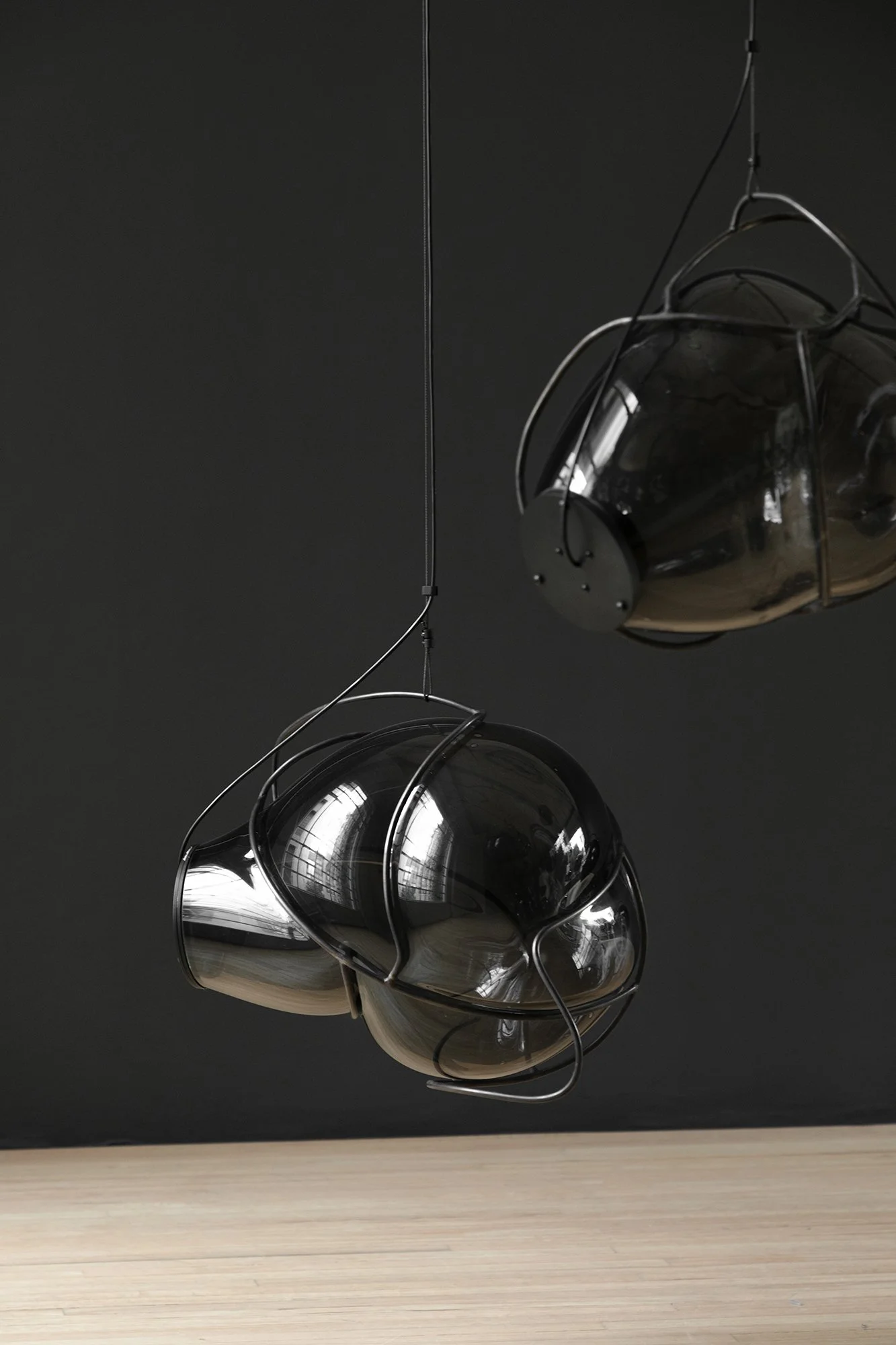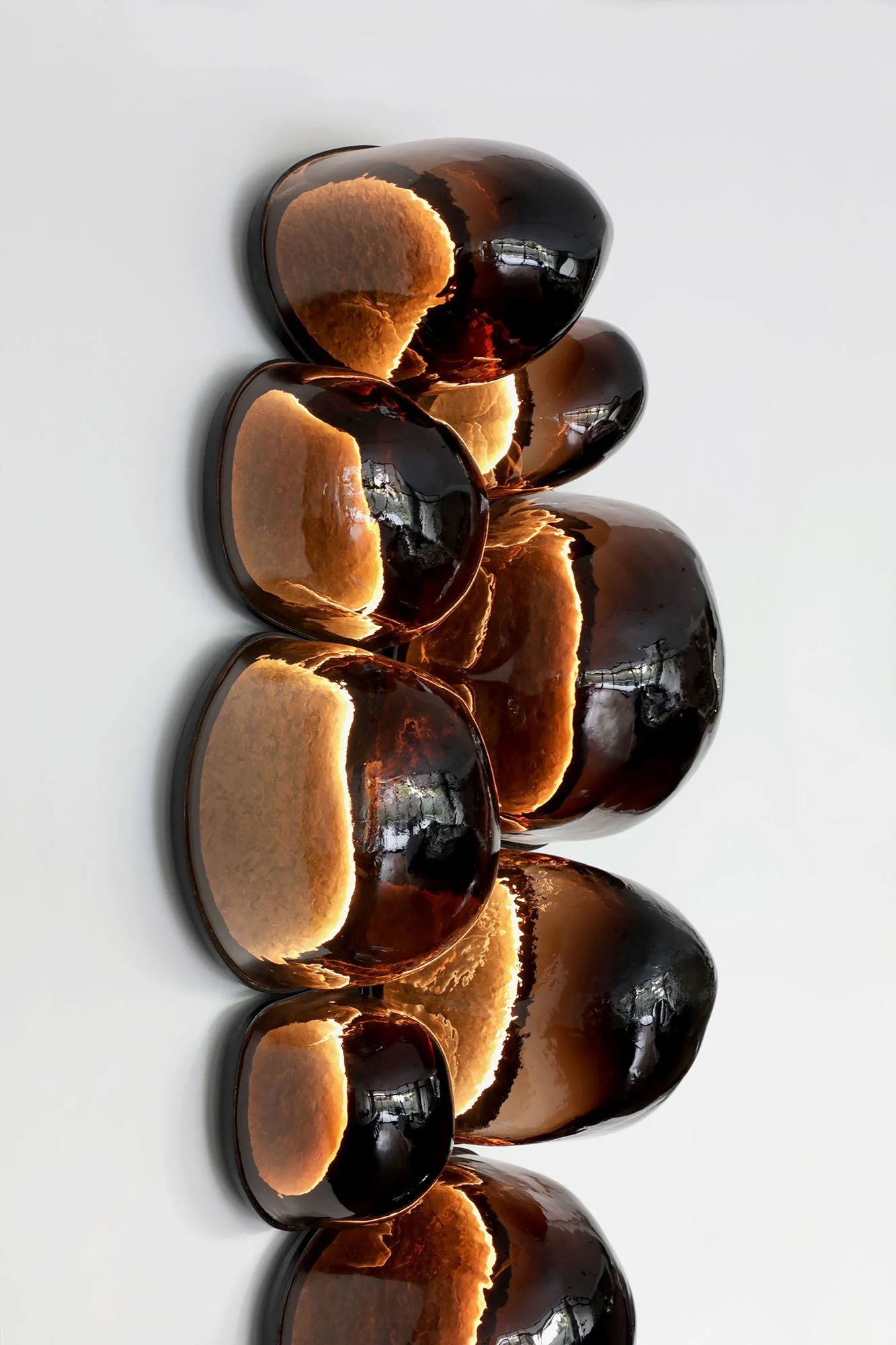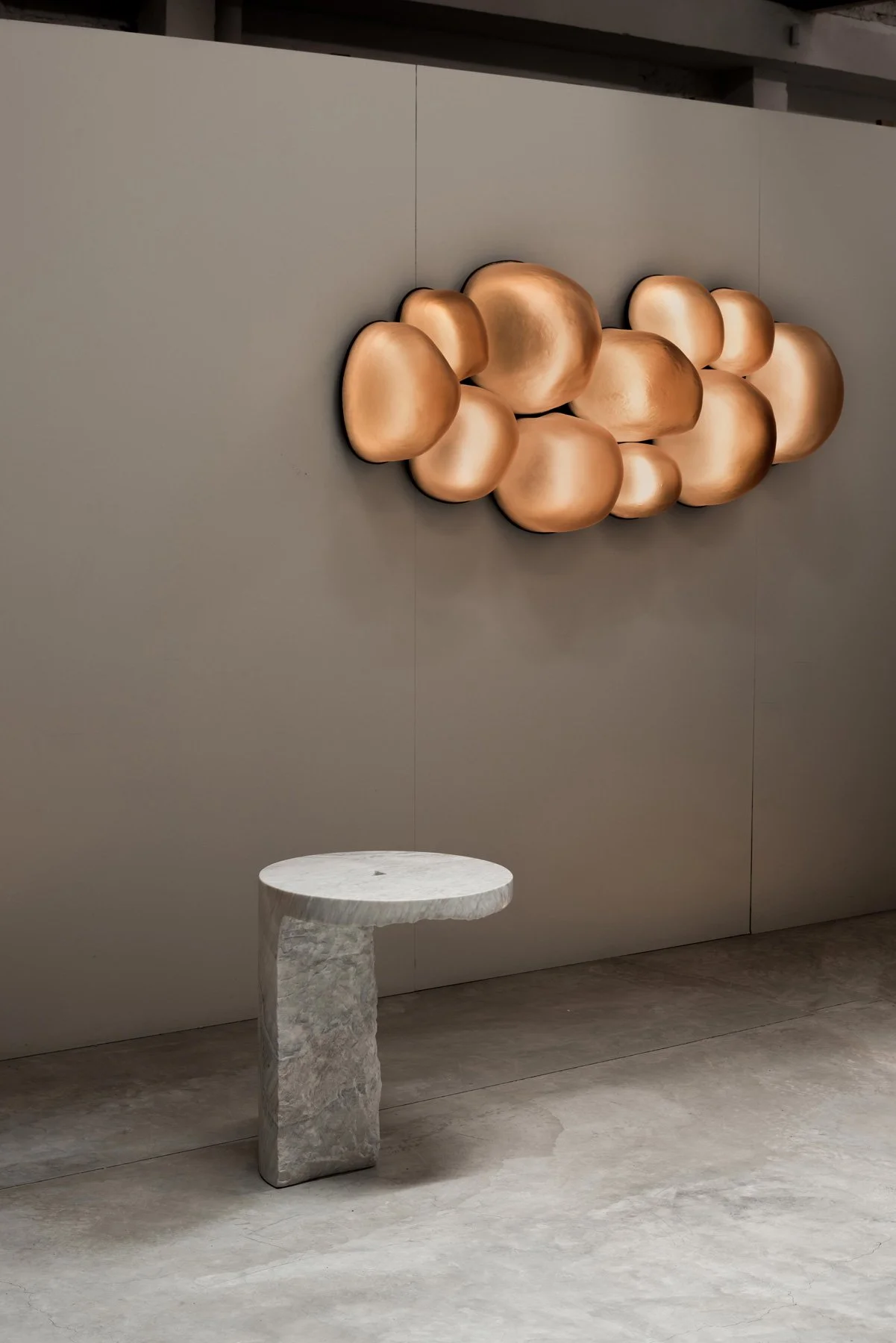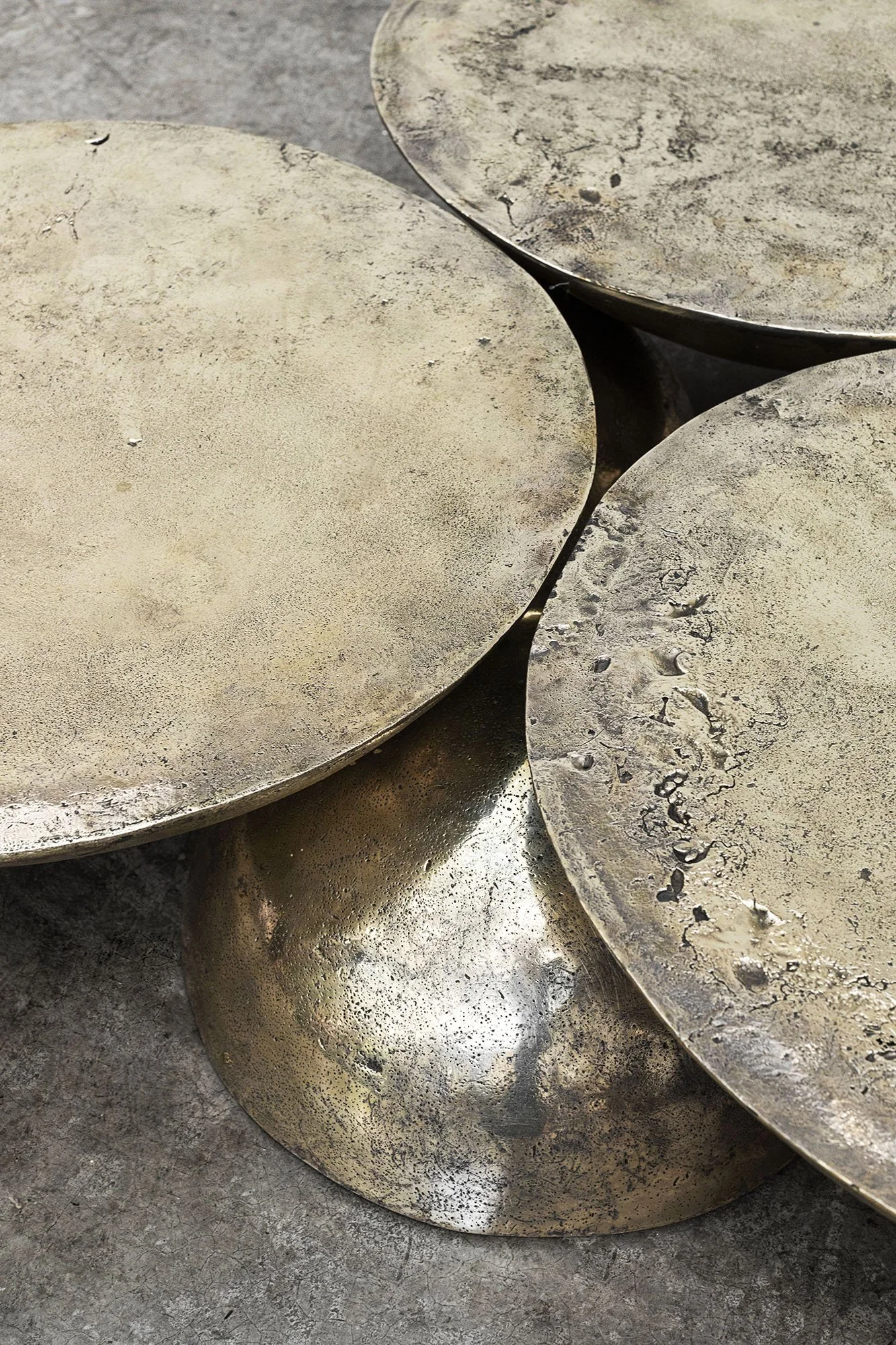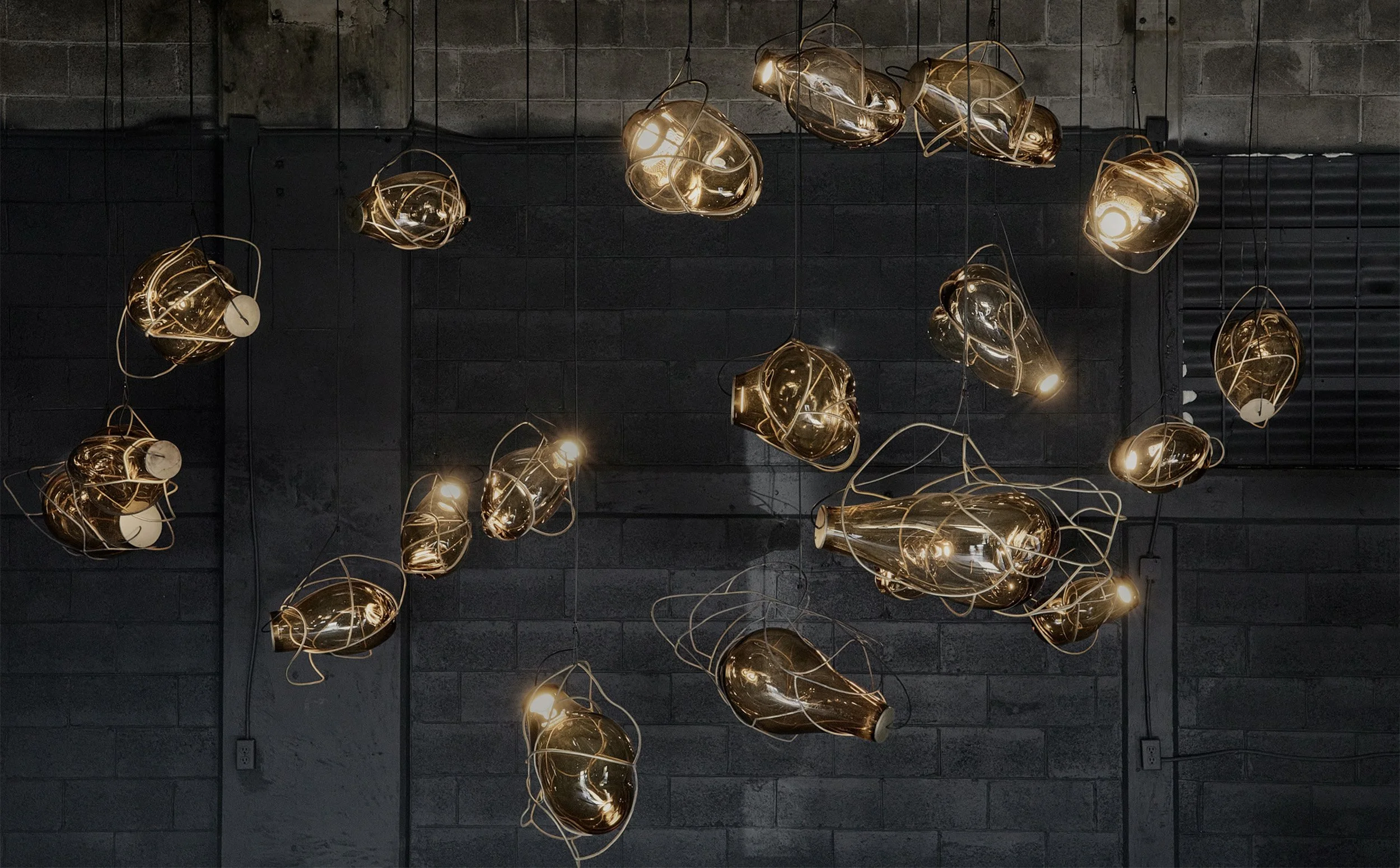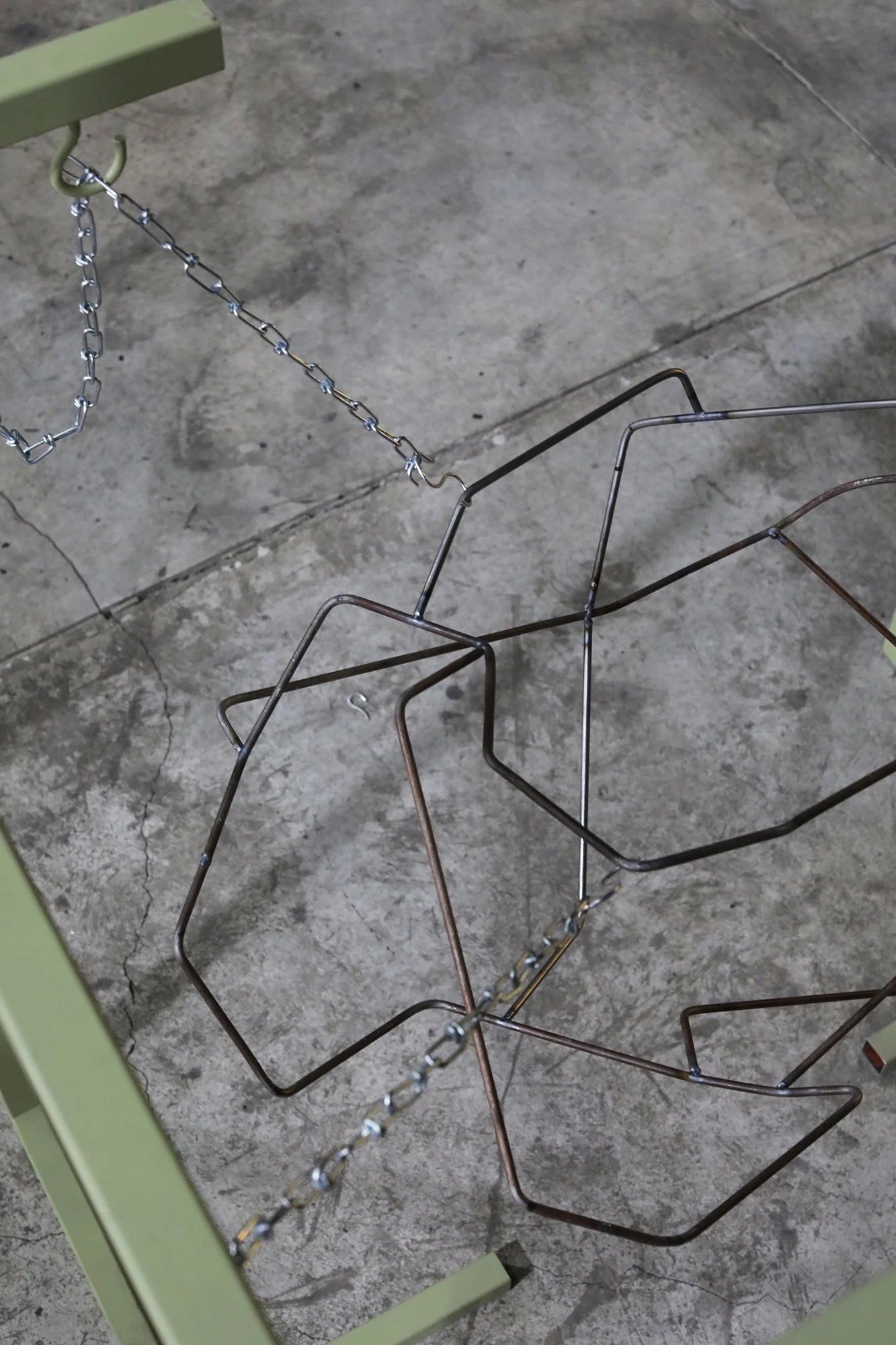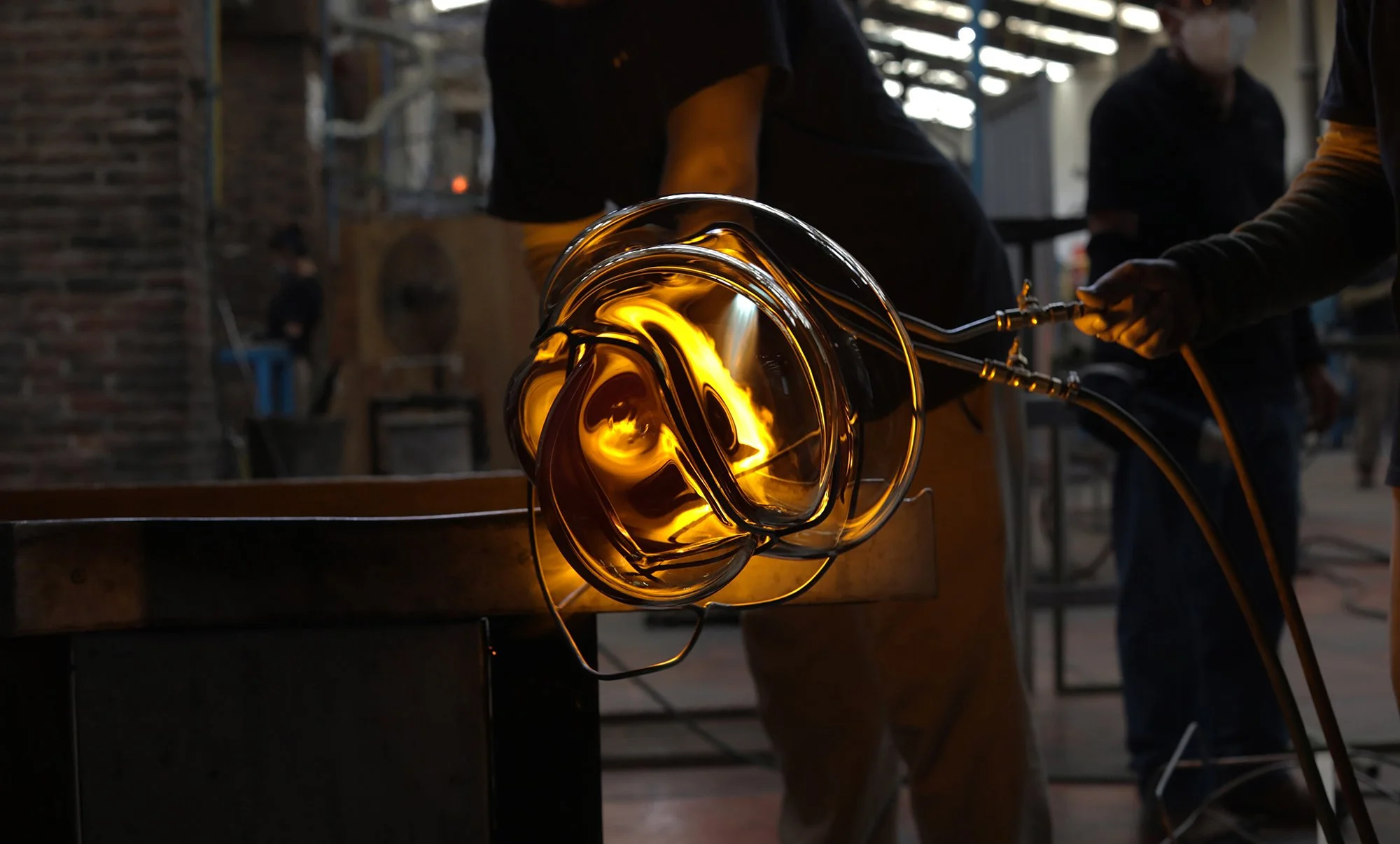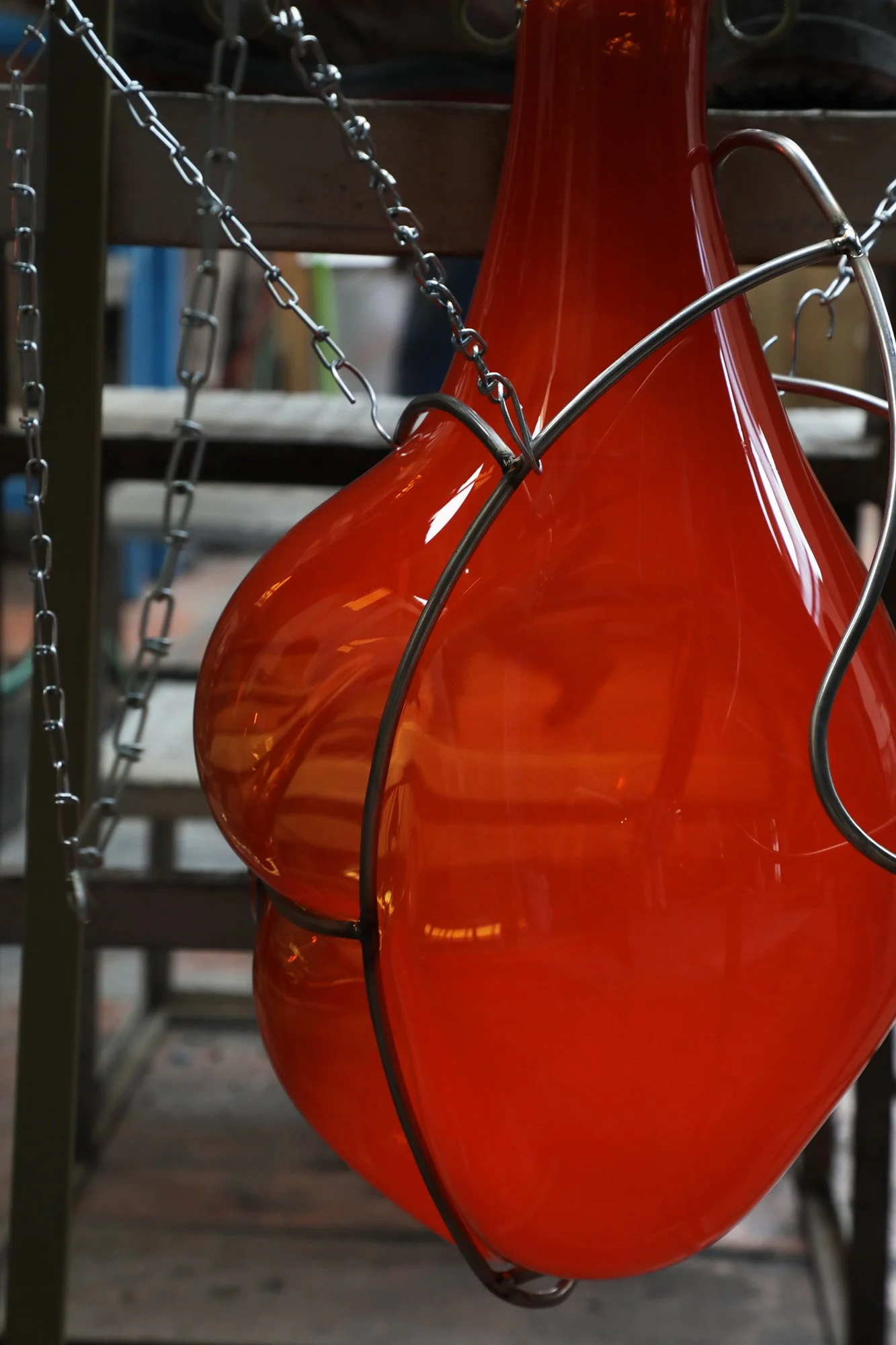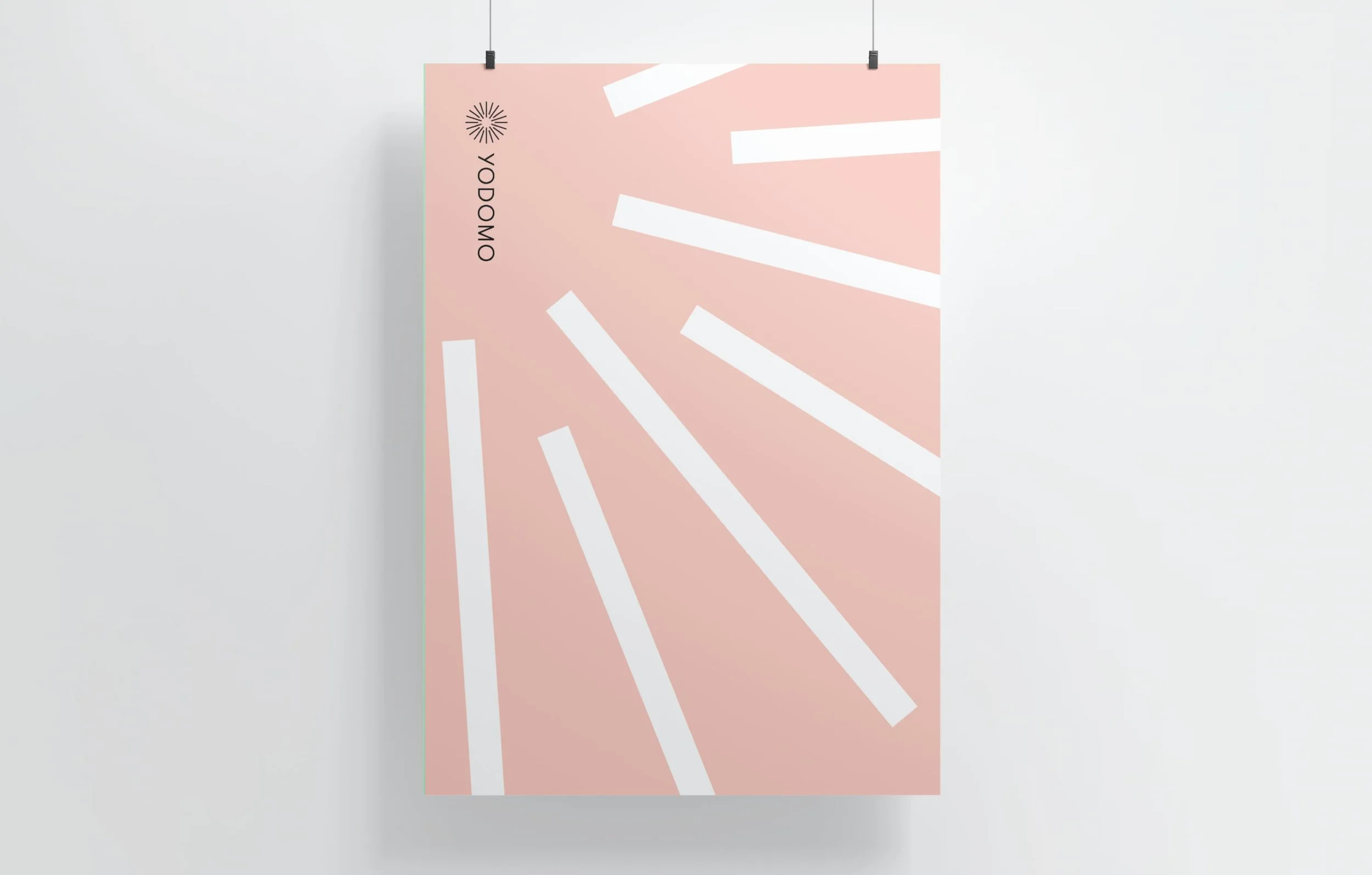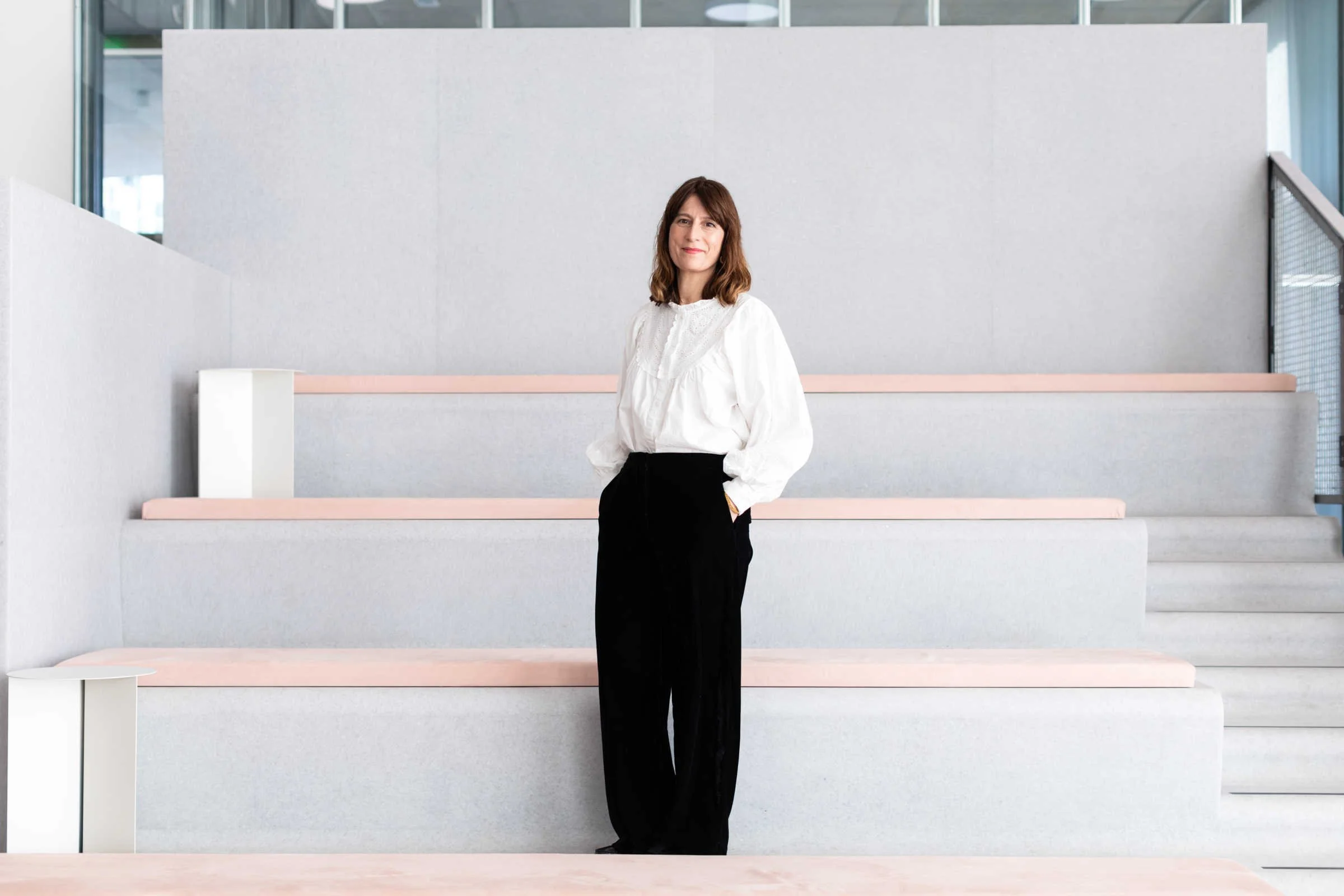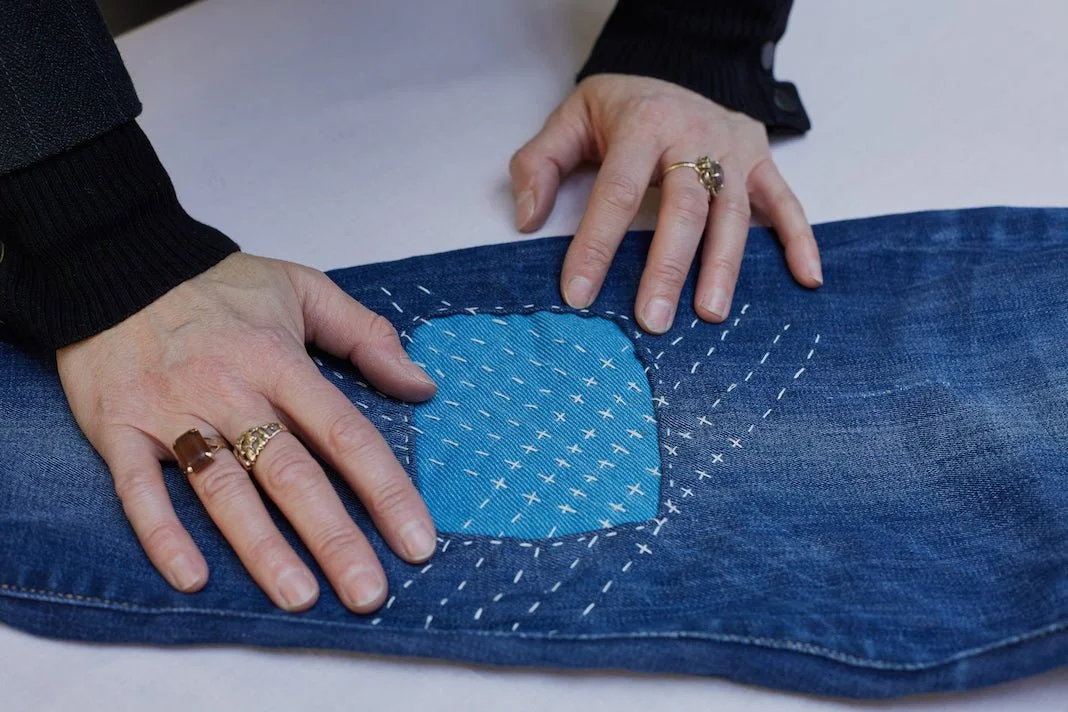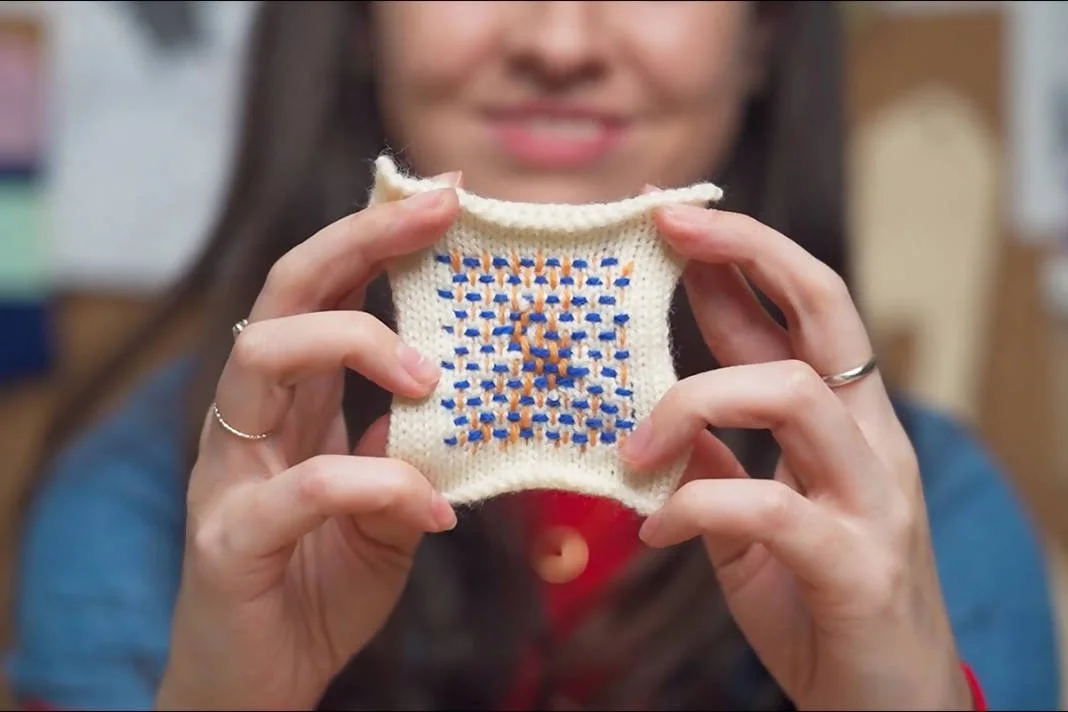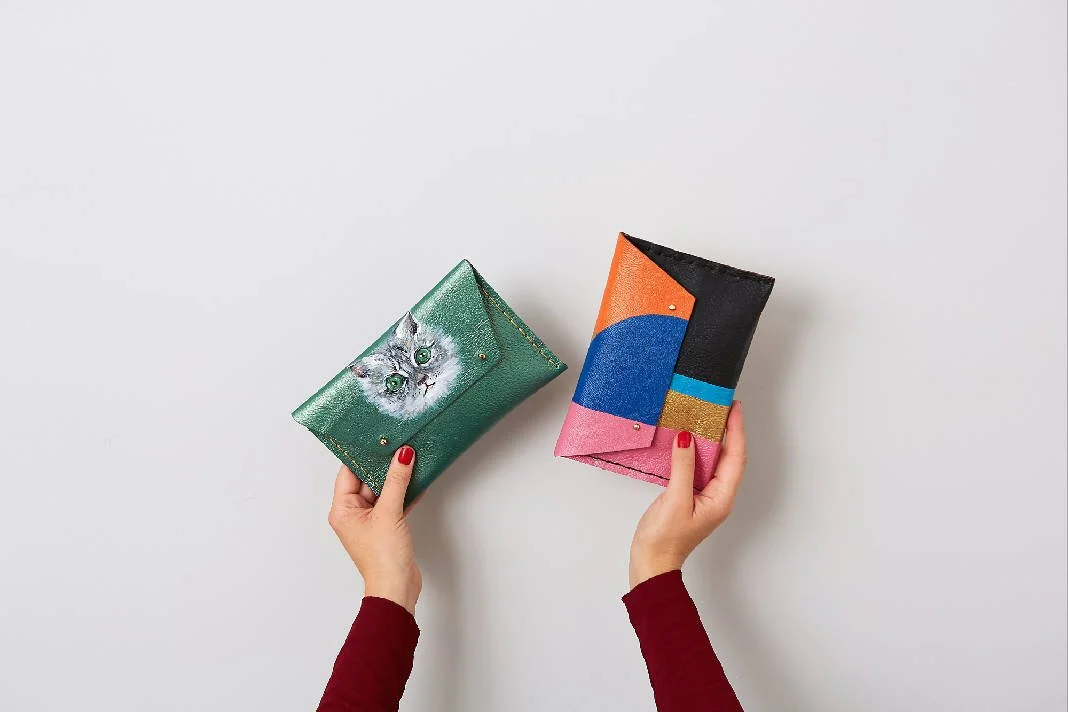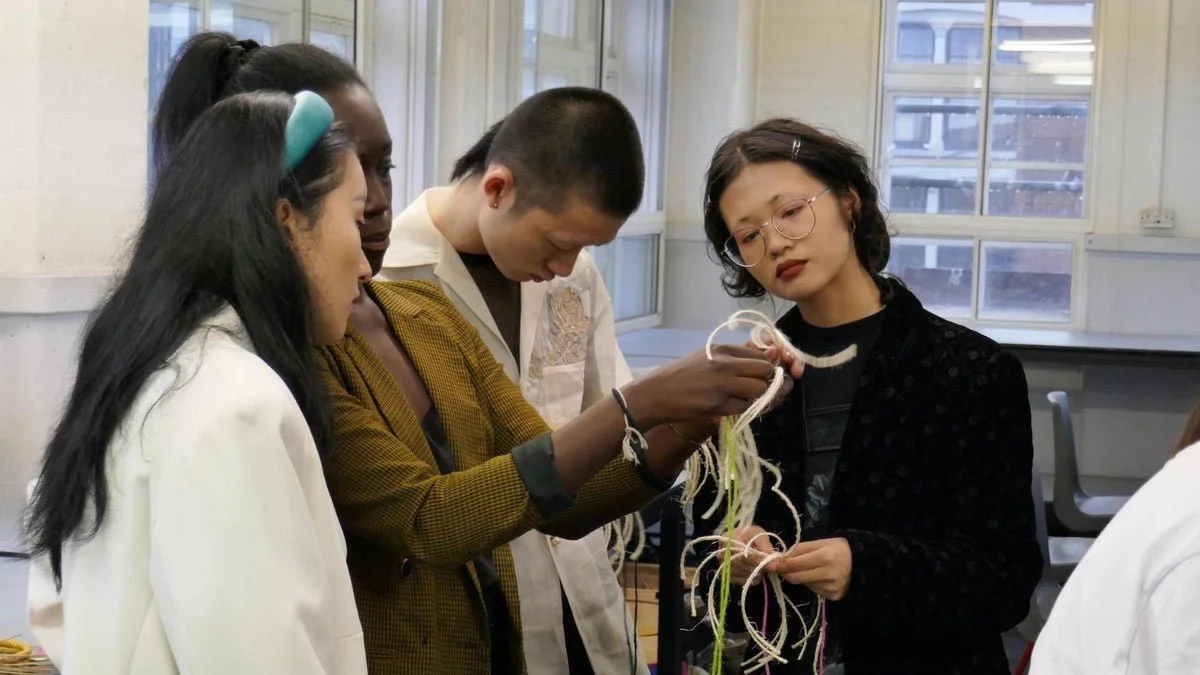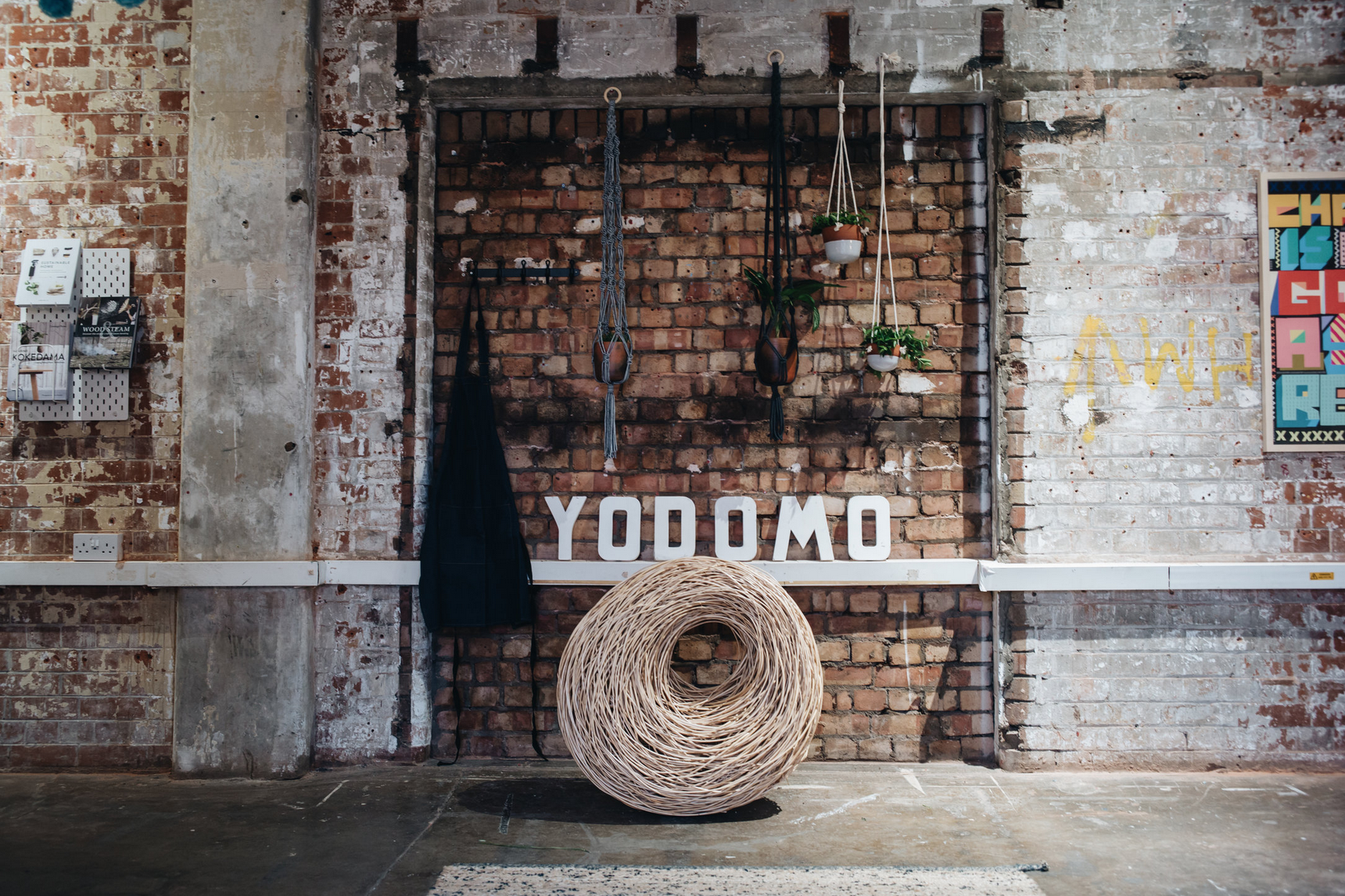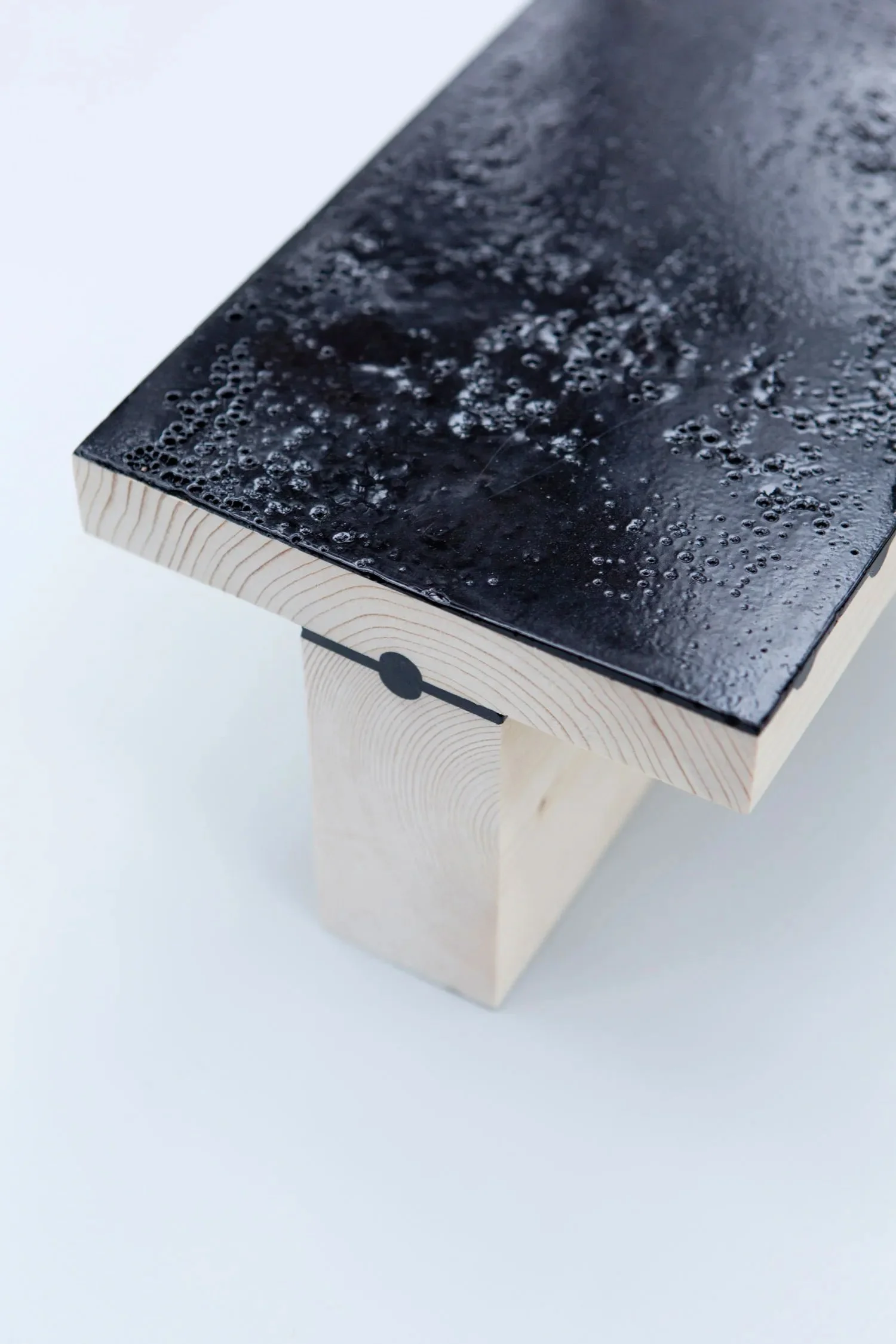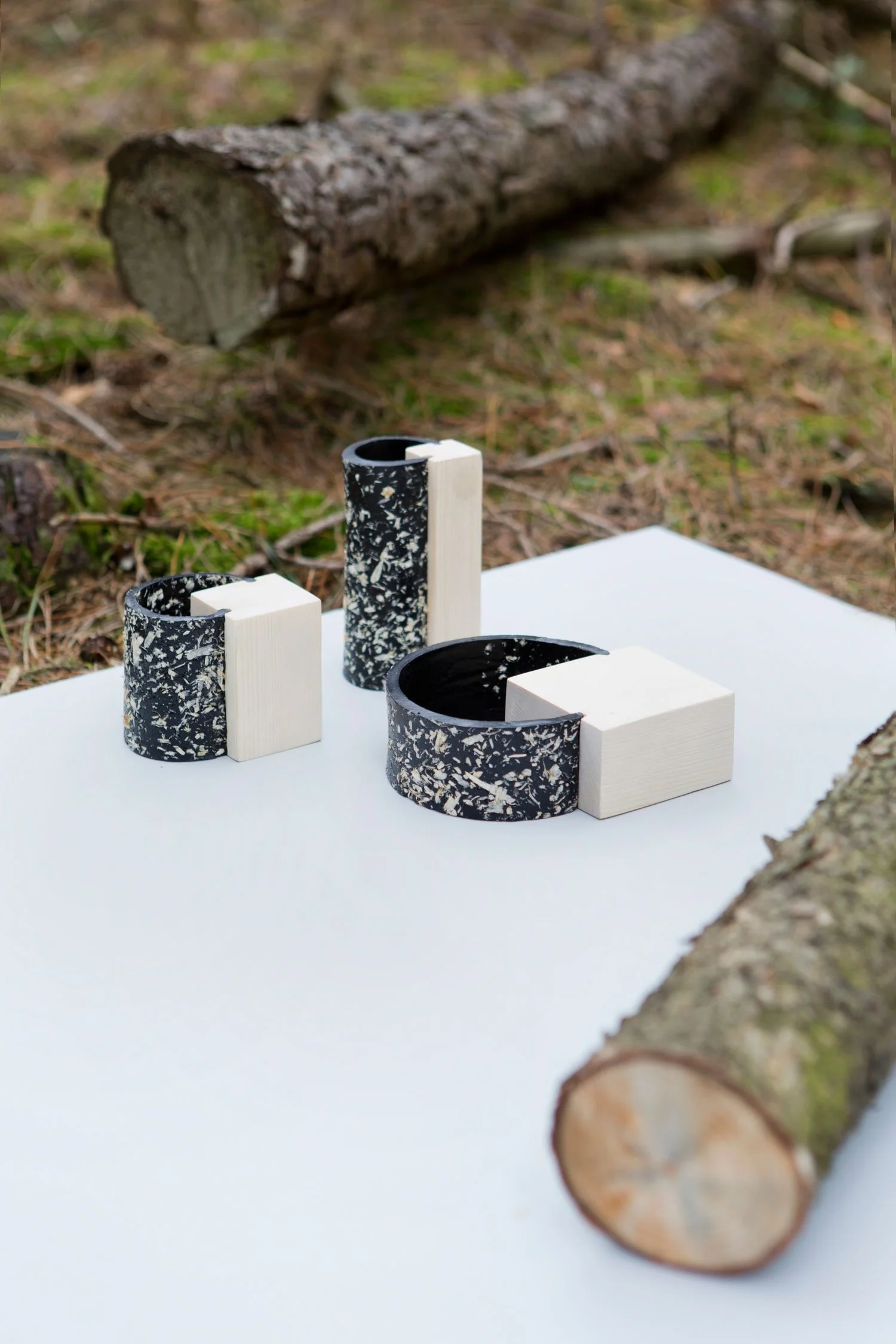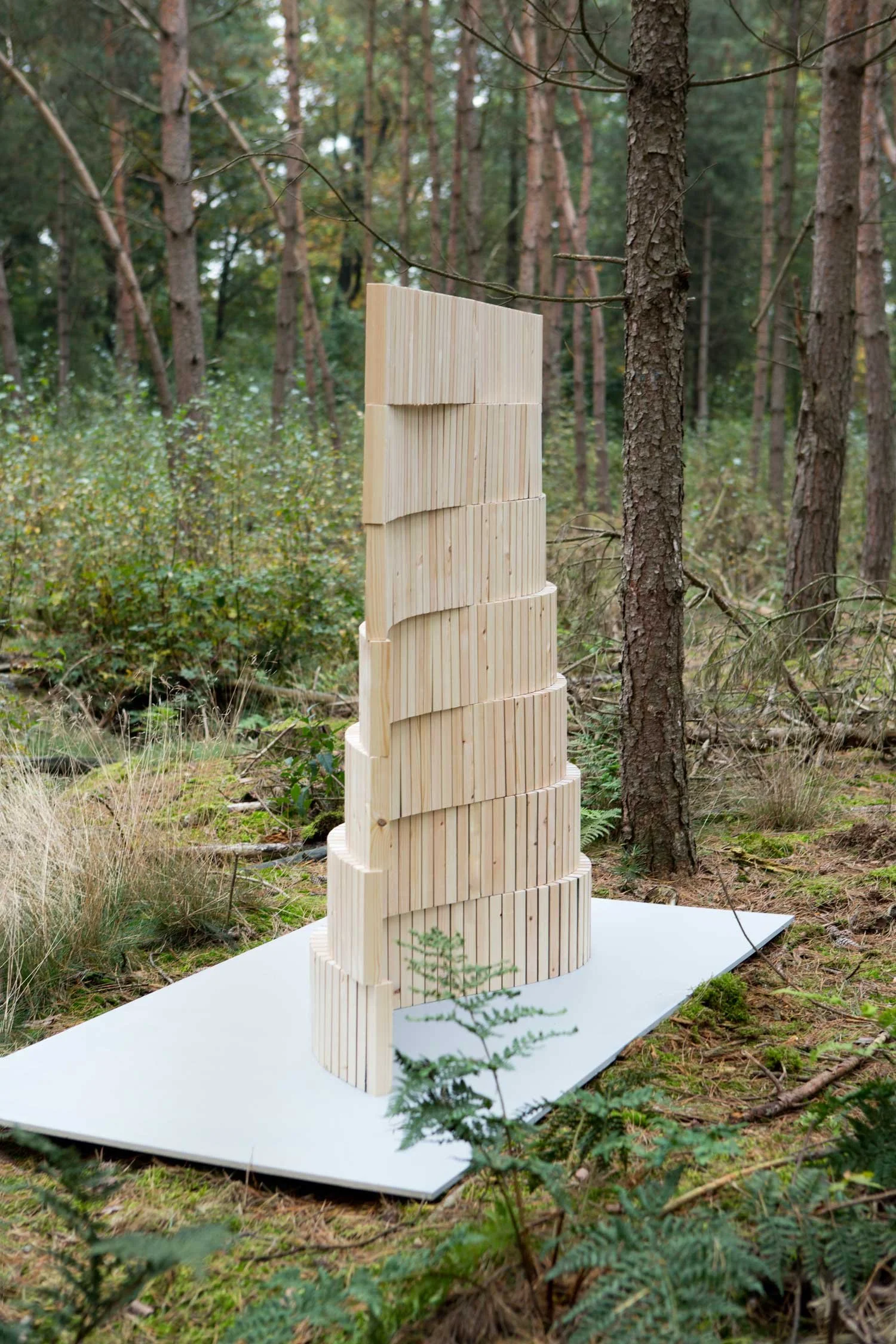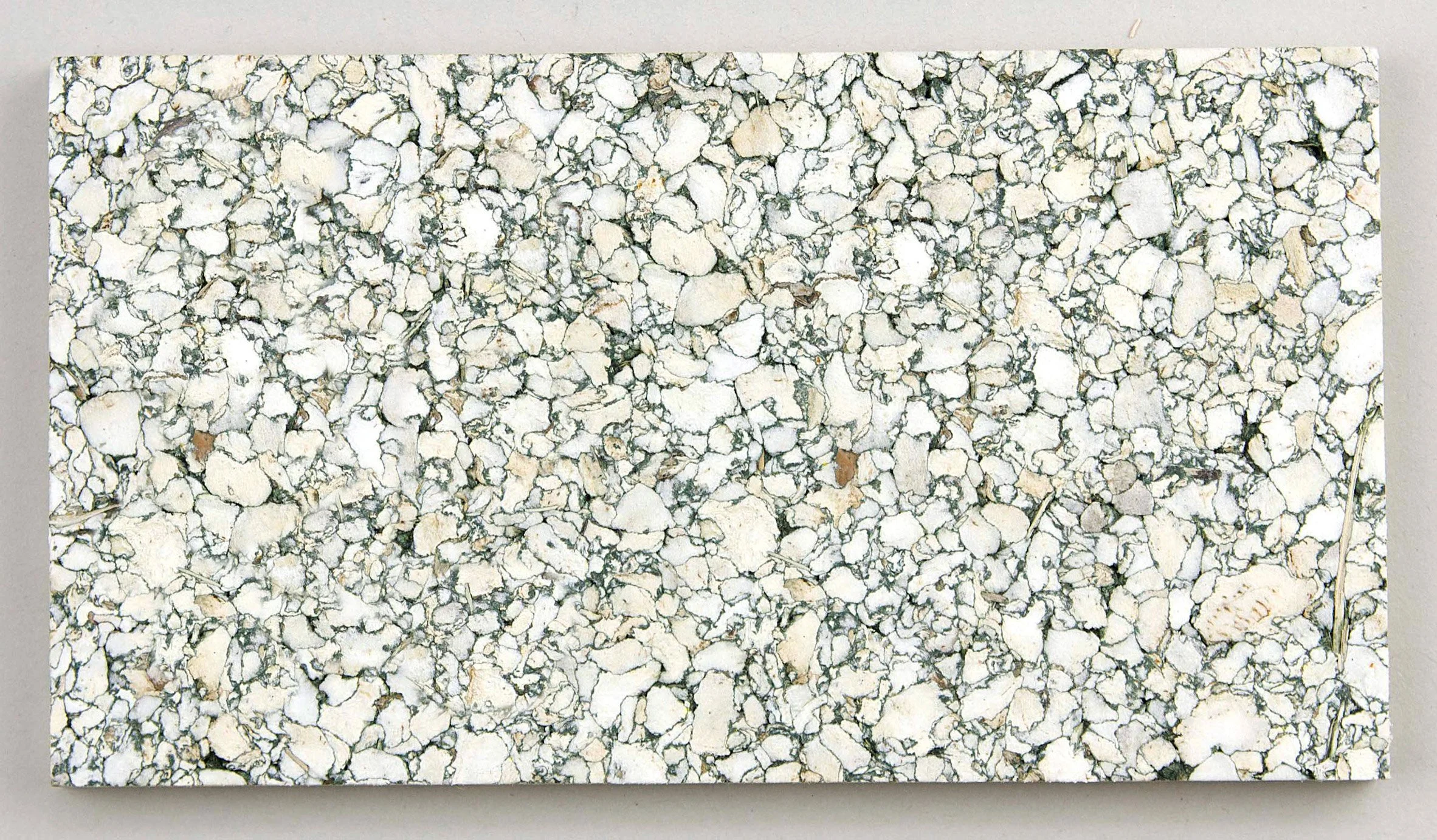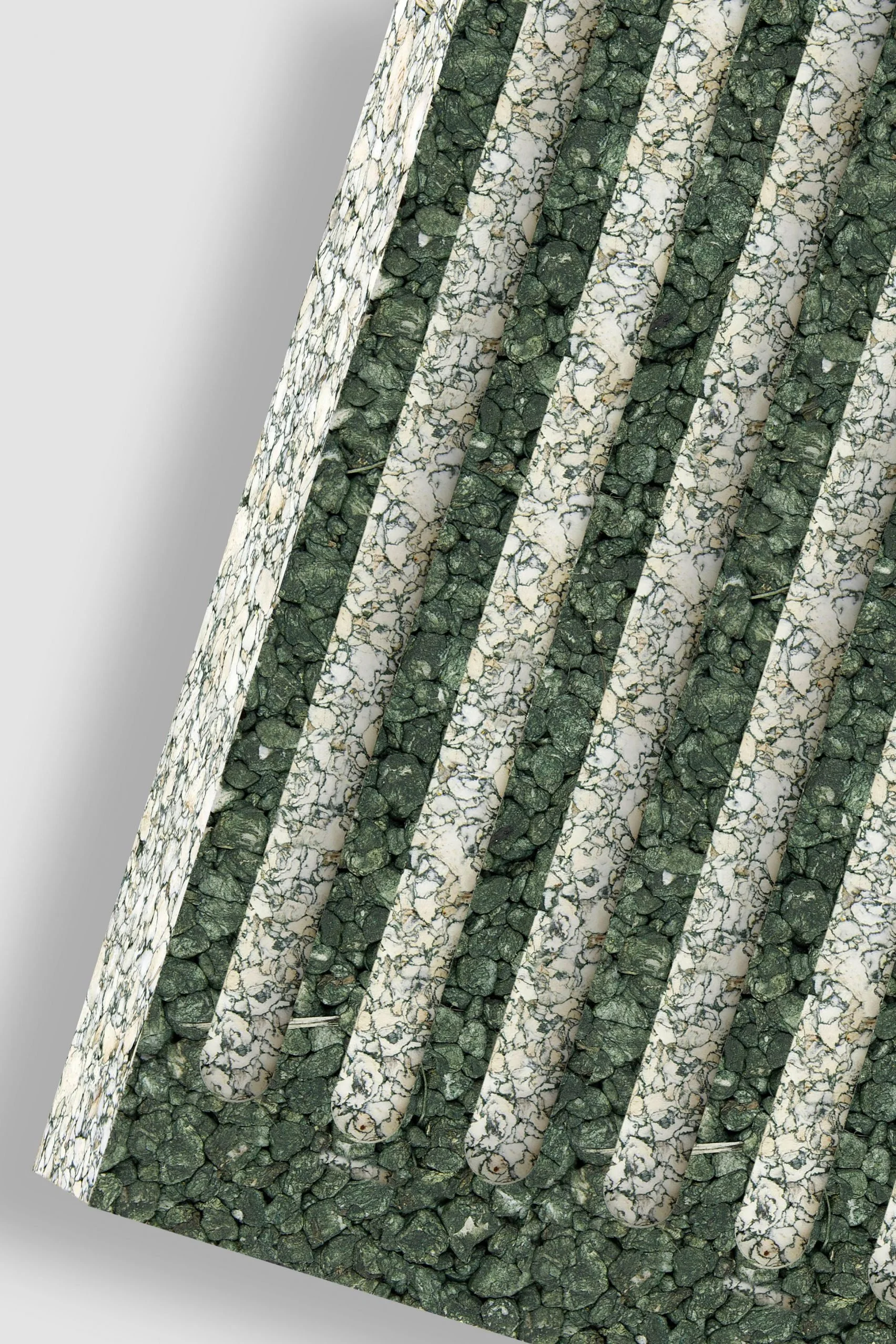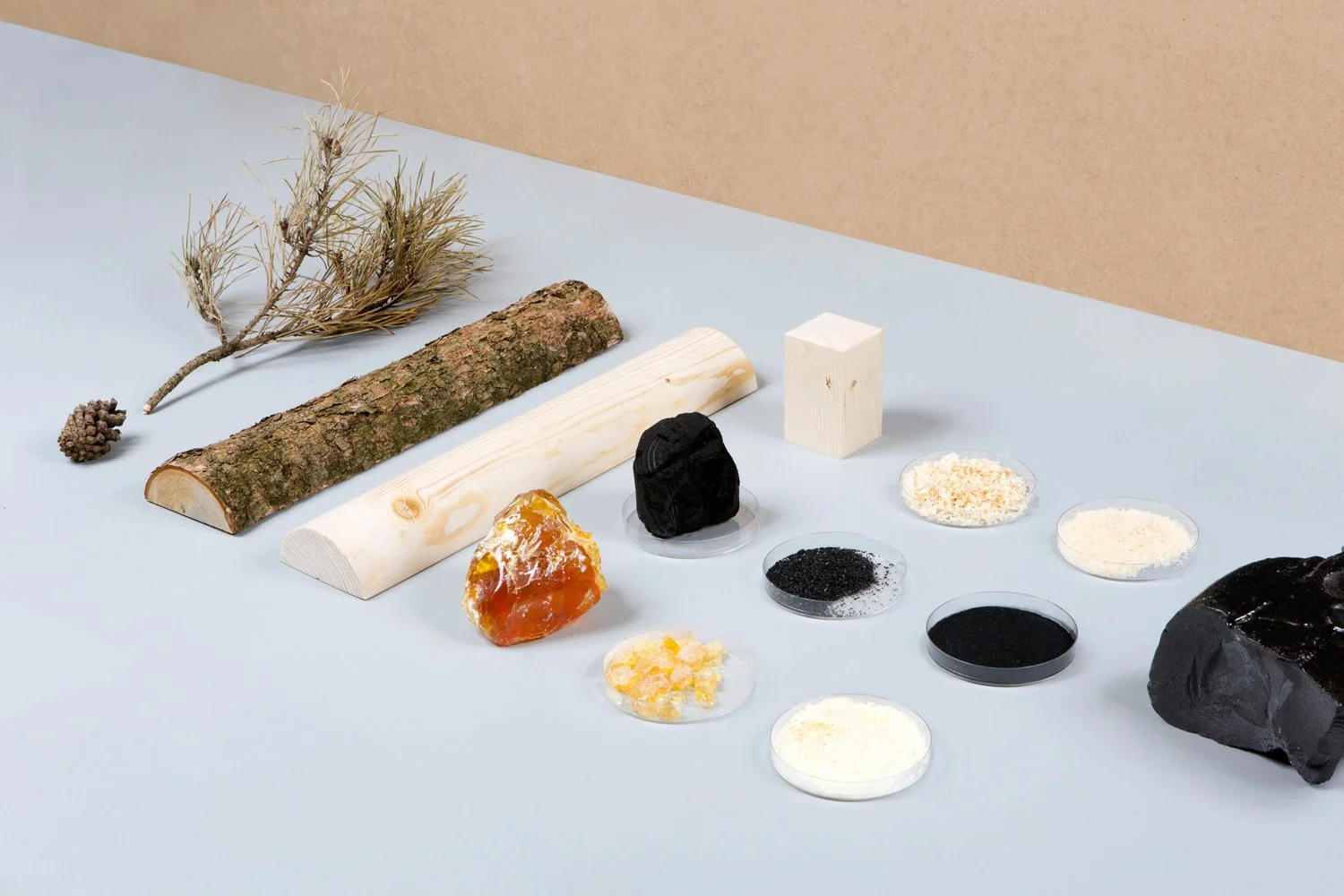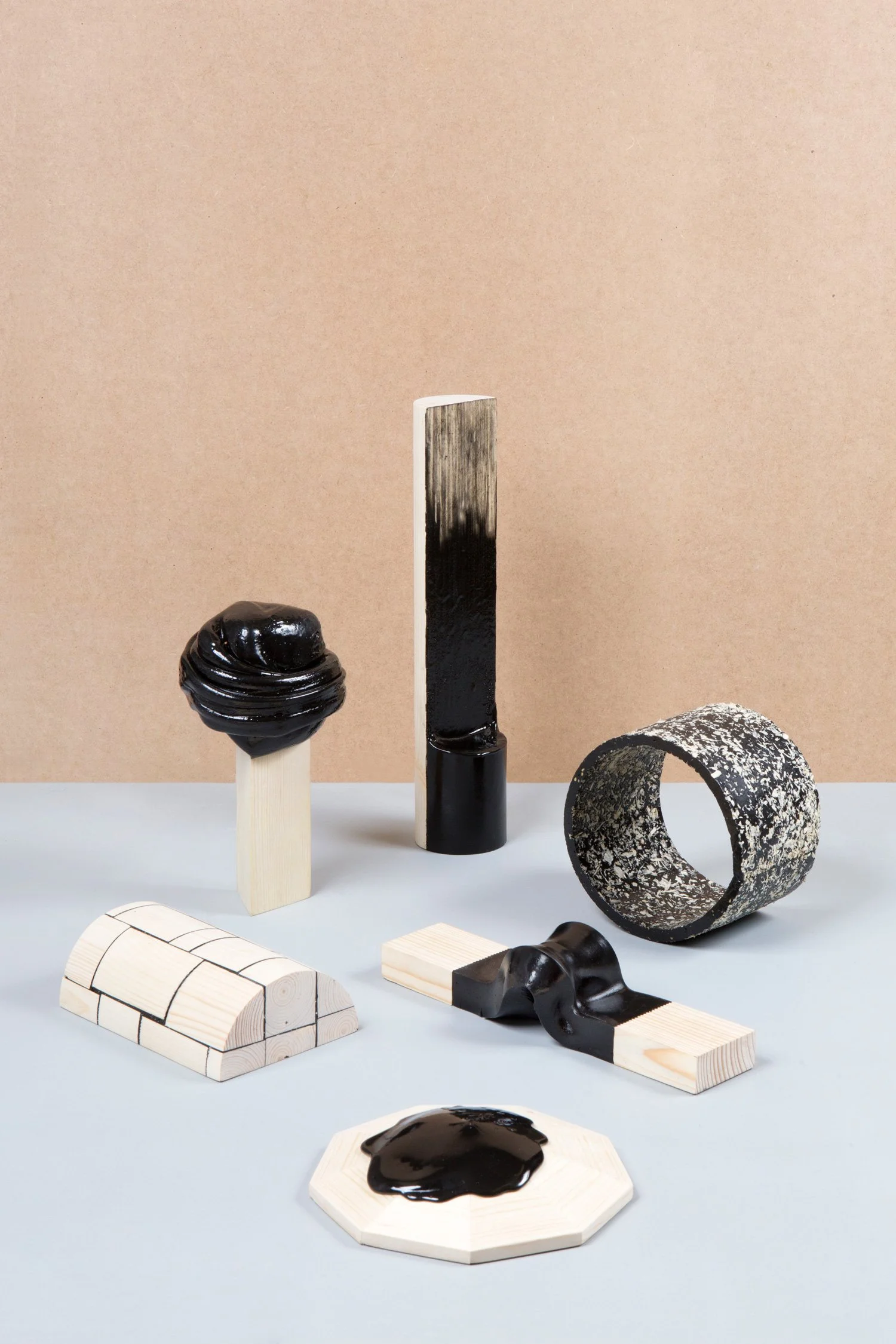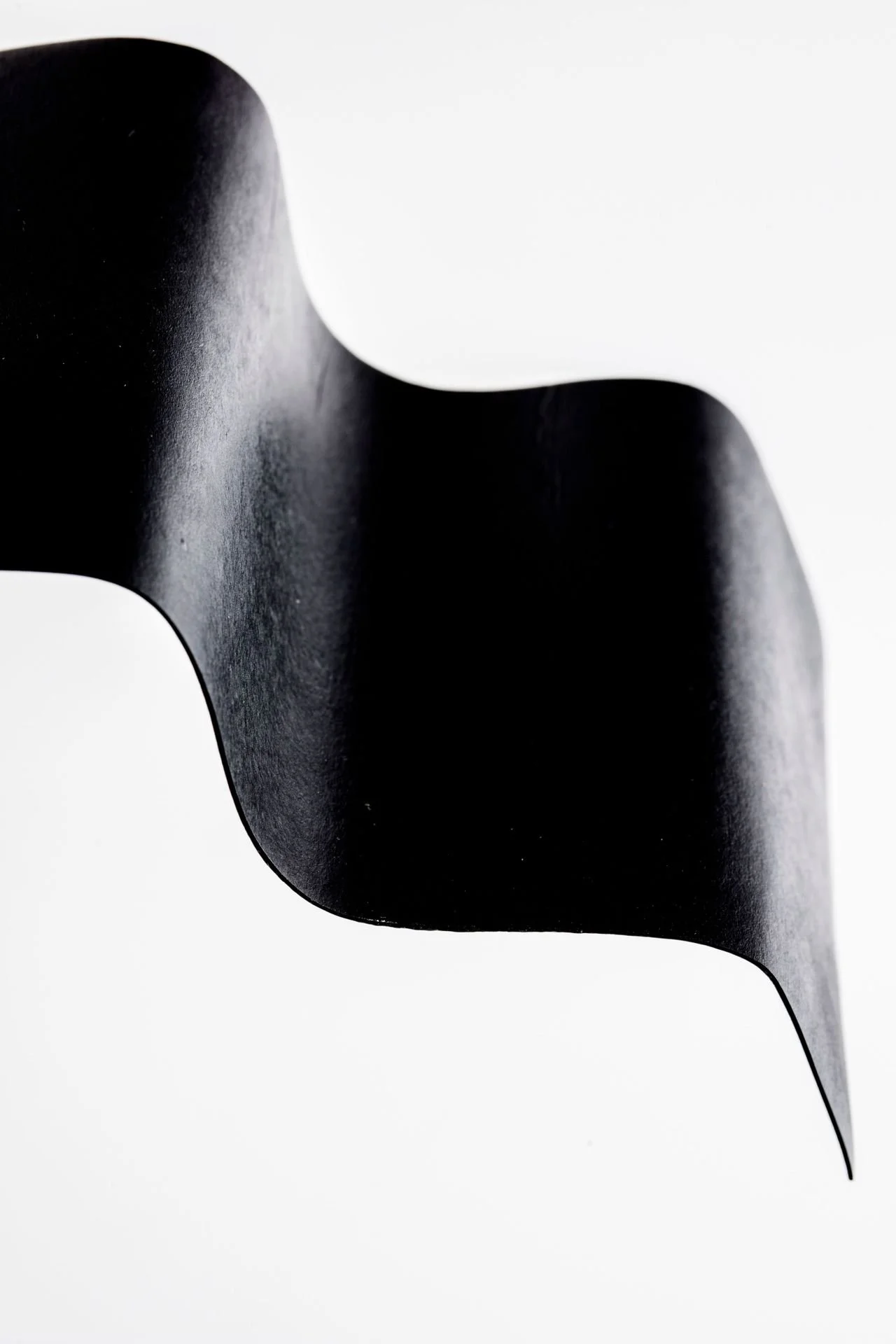 Image 1 of 10
Image 1 of 10

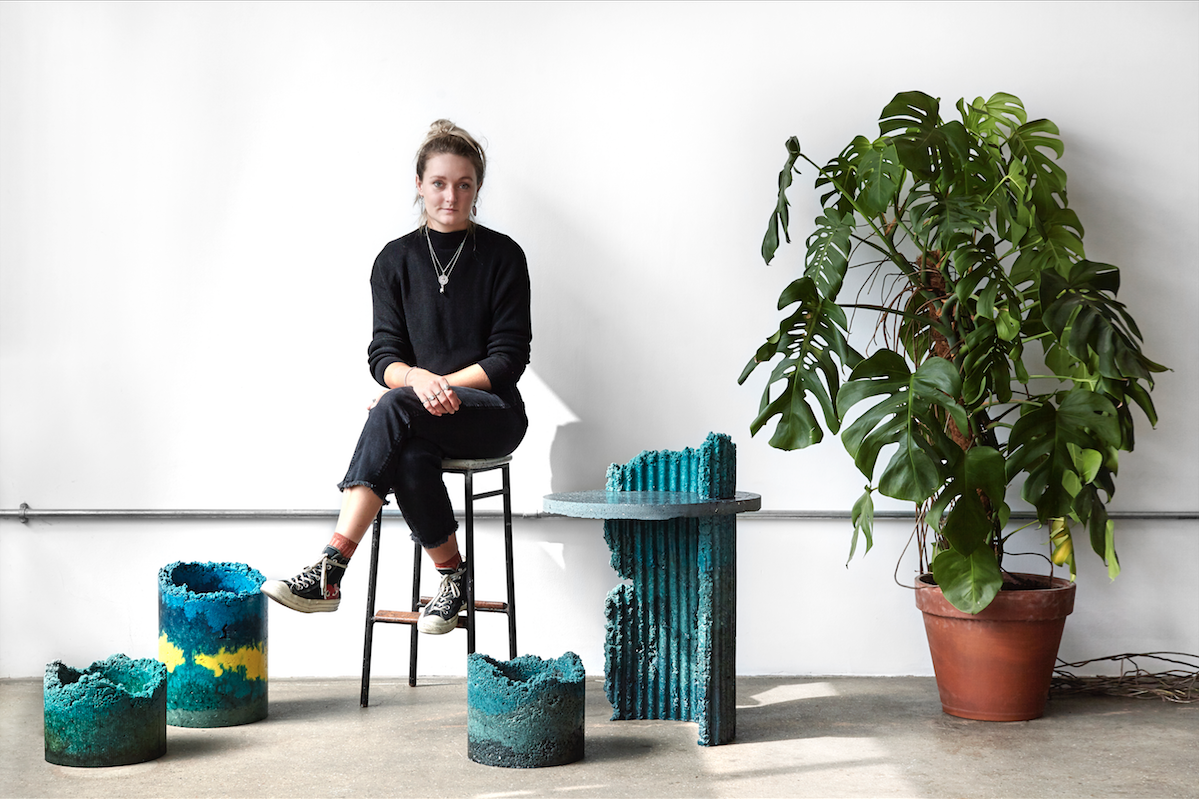 Image 2 of 10
Image 2 of 10

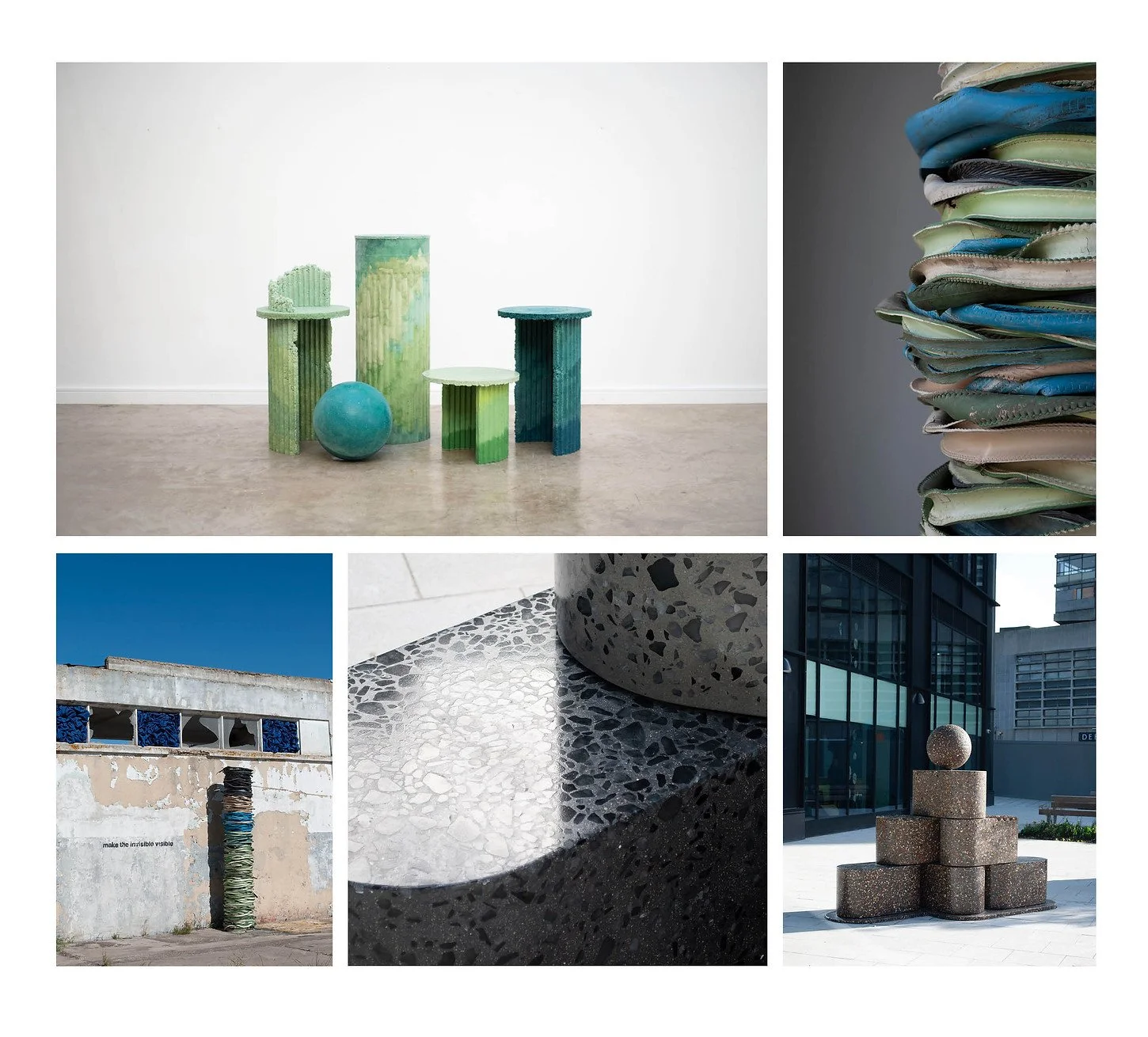 Image 3 of 10
Image 3 of 10

 Image 4 of 10
Image 4 of 10

 Image 5 of 10
Image 5 of 10

 Image 6 of 10
Image 6 of 10

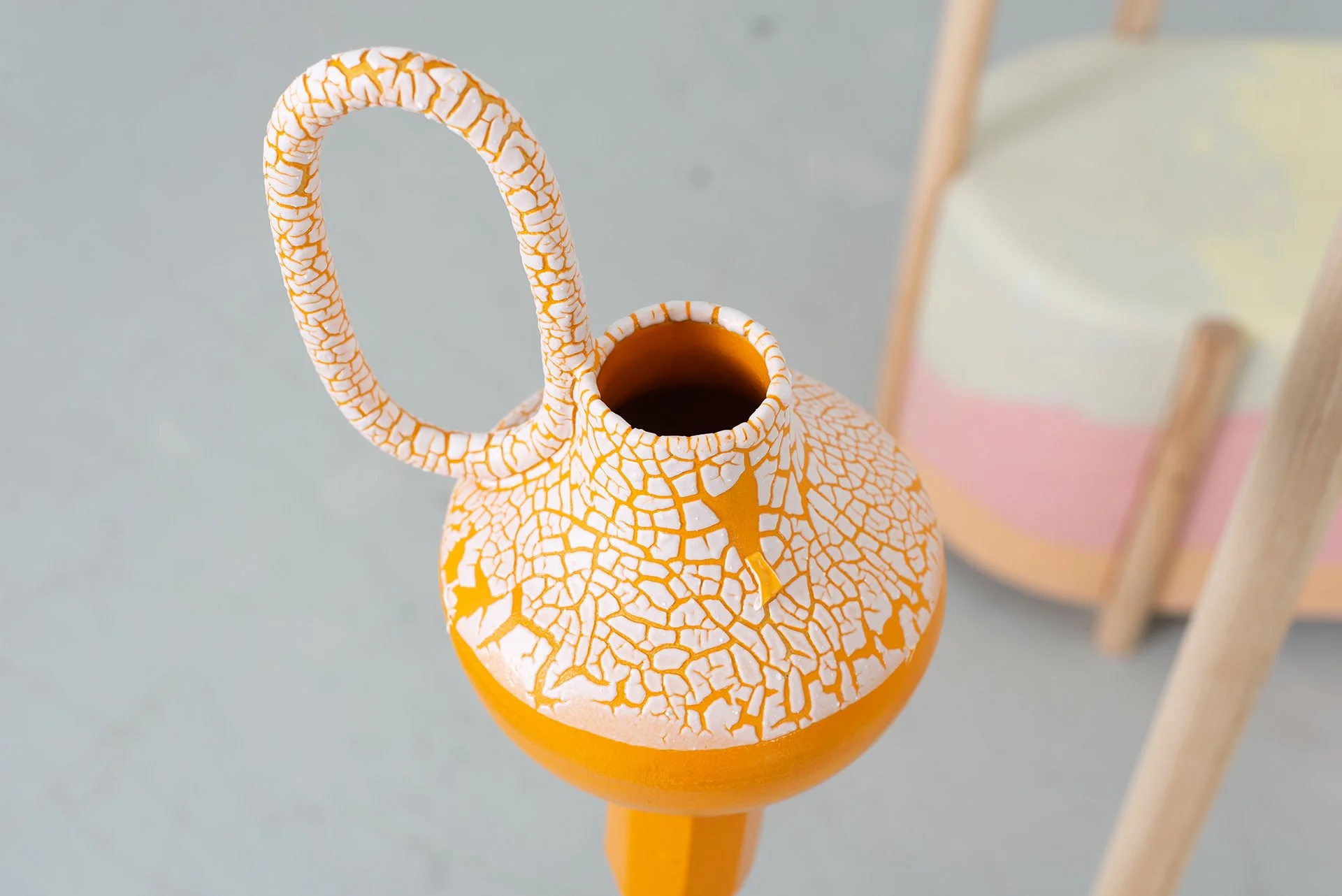 Image 7 of 10
Image 7 of 10

 Image 8 of 10
Image 8 of 10

 Image 9 of 10
Image 9 of 10

 Image 10 of 10
Image 10 of 10











Charlotte Kidger explores materials through waste and consumption
Charlotte Kidger is a London-based material designer and maker known for her innovative use of industrial waste materials. She established her practice with the mission to transform overlooked and valueless materials into desirable and functional objects. Kidger's current approach focuses on integrating circular economy principles into her design processes, creating sculptural and functional pieces from recycled polyurethane foam dust. Core values include sustainability, innovation, and craftsmanship, with a purpose to redefine the relationship between design, materials, and the environment.
Location
Headquarters: London, United Kingdom.
Primary manufacturing/operations locations: Various locations in the UK, particularly in collaboration with local CNC factories.
The Circular Vision
Core circular economy principles: Designing out waste, using recycled industrial materials, and creating products that promote environmental awareness and sustainable practices.
Key innovations: Development of a durable composite material made from 70% waste polyurethane foam dust and 30% resin. This material is used to create a range of sculptural and functional objects, including furniture and display units.
Prioritization of local sourcing and closed-loop supply chains: Emphasis on using locally sourced waste materials from CNC factories and sustainable production methods to minimize environmental impact and support local economies.
Pioneering Solutions
Flagship projects: Kidger's portfolio includes innovative projects such as the "Industrial Craft" collection (furniture and objects made from recycled polyurethane foam dust), collaborations with Browns Fashion for store displays, and public art installations like the Zurich Insurance commission in Swindon Town Centre.
The Regenerative Future
R&D focus areas: Advancing sustainable material development techniques, exploring new applications for recycled industrial waste, and developing solutions that further reduce waste and energy consumption in design and production processes.
Ambitious goals: To lead the design industry in sustainable practices, create zero-waste products, and inspire a shift towards a regenerative approach to material design and usage.
Fact Sheet
Commercial Availability: Design pieces and services available through galleries, exhibitions, and direct commissions.
Circularity Rating: 5/5 (Strong focus on integrating circular economy principles and waste reduction in design).
Key Certifications: Finalist in the HIX Art Award, Creaftiga, and Design Blok Prague; selected for Crafts Council Hothouse Programme.
Cost Rating: High-end pricing for innovative and sustainable design pieces.
Material Passport: Detailed use of recycled polyurethane foam dust and other sustainable materials in projects, with emphasis on their environmental and ethical significance.
Designed for Disassembly: Yes, many products focus on recyclability and material reuse.
Carbon Performance: Focus on reducing carbon footprint through the use of recycled materials and local production. Specific carbon metrics not provided.
Key Takeaway
Charlotte Kidger transforms the design industry through innovative use of recycled industrial waste materials, setting a benchmark for environmental responsibility and material innovation in contemporary design.
Explore Further
Charlotte Kidger website: https://www.charlottekidger.com
Charlotte Kidger is a London-based material designer and maker known for her innovative use of industrial waste materials. She established her practice with the mission to transform overlooked and valueless materials into desirable and functional objects. Kidger's current approach focuses on integrating circular economy principles into her design processes, creating sculptural and functional pieces from recycled polyurethane foam dust. Core values include sustainability, innovation, and craftsmanship, with a purpose to redefine the relationship between design, materials, and the environment.
Location
Headquarters: London, United Kingdom.
Primary manufacturing/operations locations: Various locations in the UK, particularly in collaboration with local CNC factories.
The Circular Vision
Core circular economy principles: Designing out waste, using recycled industrial materials, and creating products that promote environmental awareness and sustainable practices.
Key innovations: Development of a durable composite material made from 70% waste polyurethane foam dust and 30% resin. This material is used to create a range of sculptural and functional objects, including furniture and display units.
Prioritization of local sourcing and closed-loop supply chains: Emphasis on using locally sourced waste materials from CNC factories and sustainable production methods to minimize environmental impact and support local economies.
Pioneering Solutions
Flagship projects: Kidger's portfolio includes innovative projects such as the "Industrial Craft" collection (furniture and objects made from recycled polyurethane foam dust), collaborations with Browns Fashion for store displays, and public art installations like the Zurich Insurance commission in Swindon Town Centre.
The Regenerative Future
R&D focus areas: Advancing sustainable material development techniques, exploring new applications for recycled industrial waste, and developing solutions that further reduce waste and energy consumption in design and production processes.
Ambitious goals: To lead the design industry in sustainable practices, create zero-waste products, and inspire a shift towards a regenerative approach to material design and usage.
Fact Sheet
Commercial Availability: Design pieces and services available through galleries, exhibitions, and direct commissions.
Circularity Rating: 5/5 (Strong focus on integrating circular economy principles and waste reduction in design).
Key Certifications: Finalist in the HIX Art Award, Creaftiga, and Design Blok Prague; selected for Crafts Council Hothouse Programme.
Cost Rating: High-end pricing for innovative and sustainable design pieces.
Material Passport: Detailed use of recycled polyurethane foam dust and other sustainable materials in projects, with emphasis on their environmental and ethical significance.
Designed for Disassembly: Yes, many products focus on recyclability and material reuse.
Carbon Performance: Focus on reducing carbon footprint through the use of recycled materials and local production. Specific carbon metrics not provided.
Key Takeaway
Charlotte Kidger transforms the design industry through innovative use of recycled industrial waste materials, setting a benchmark for environmental responsibility and material innovation in contemporary design.
Explore Further
Charlotte Kidger website: https://www.charlottekidger.com
